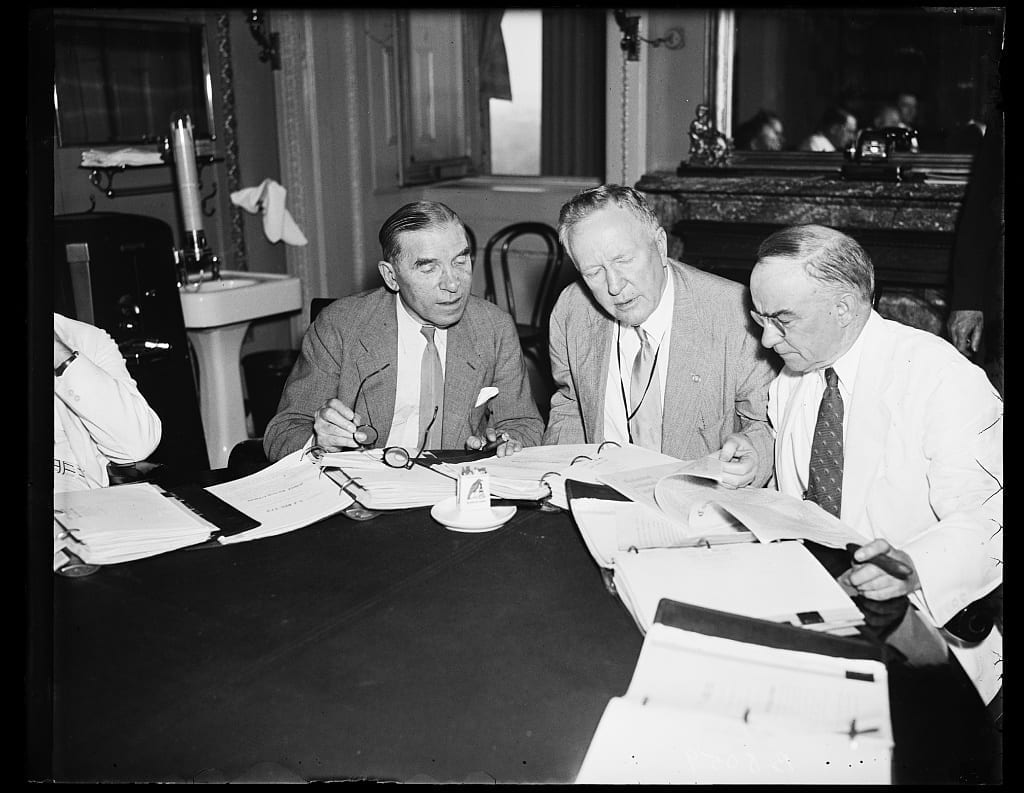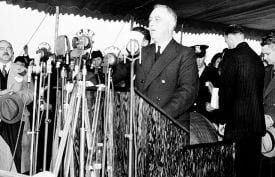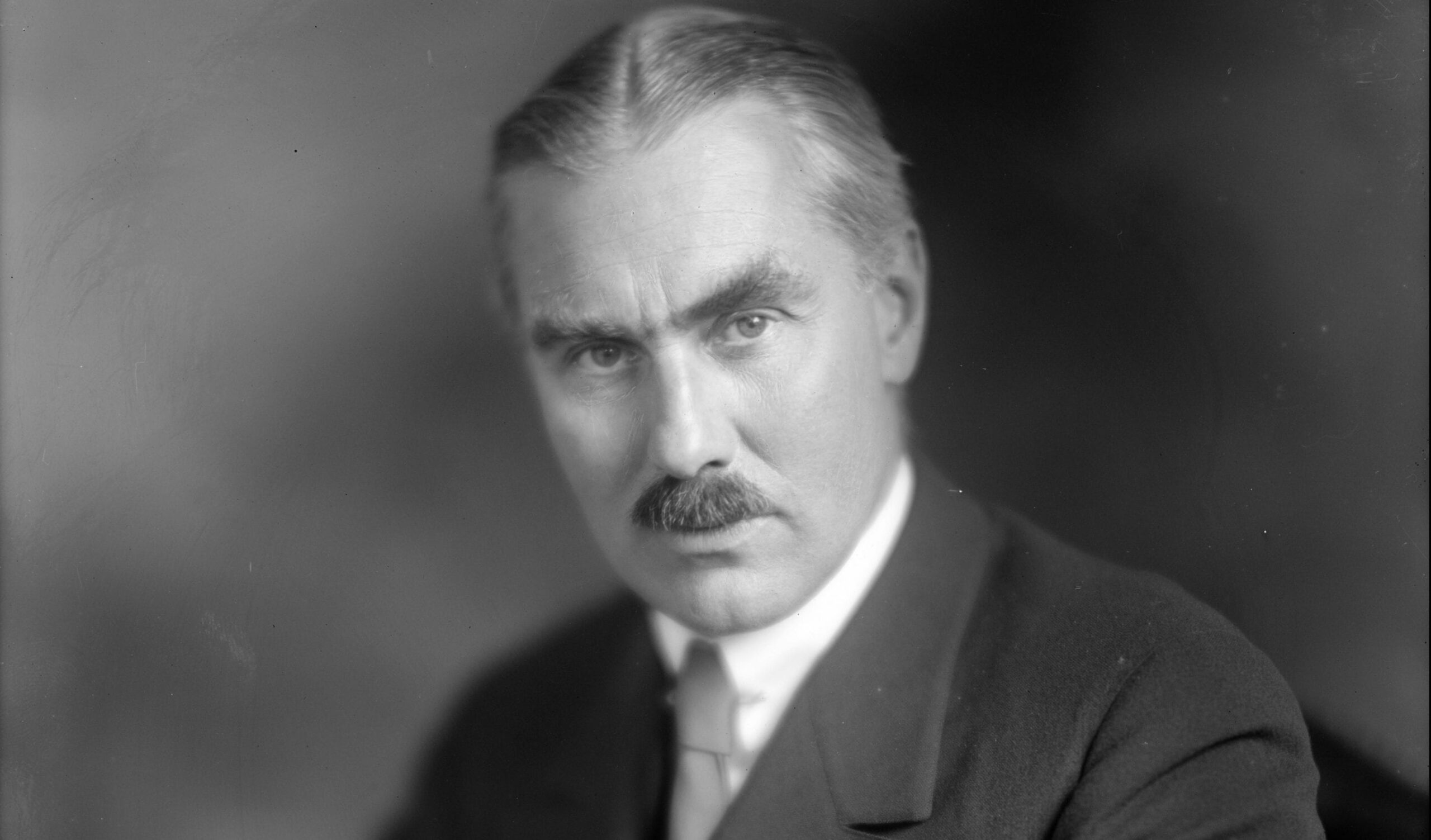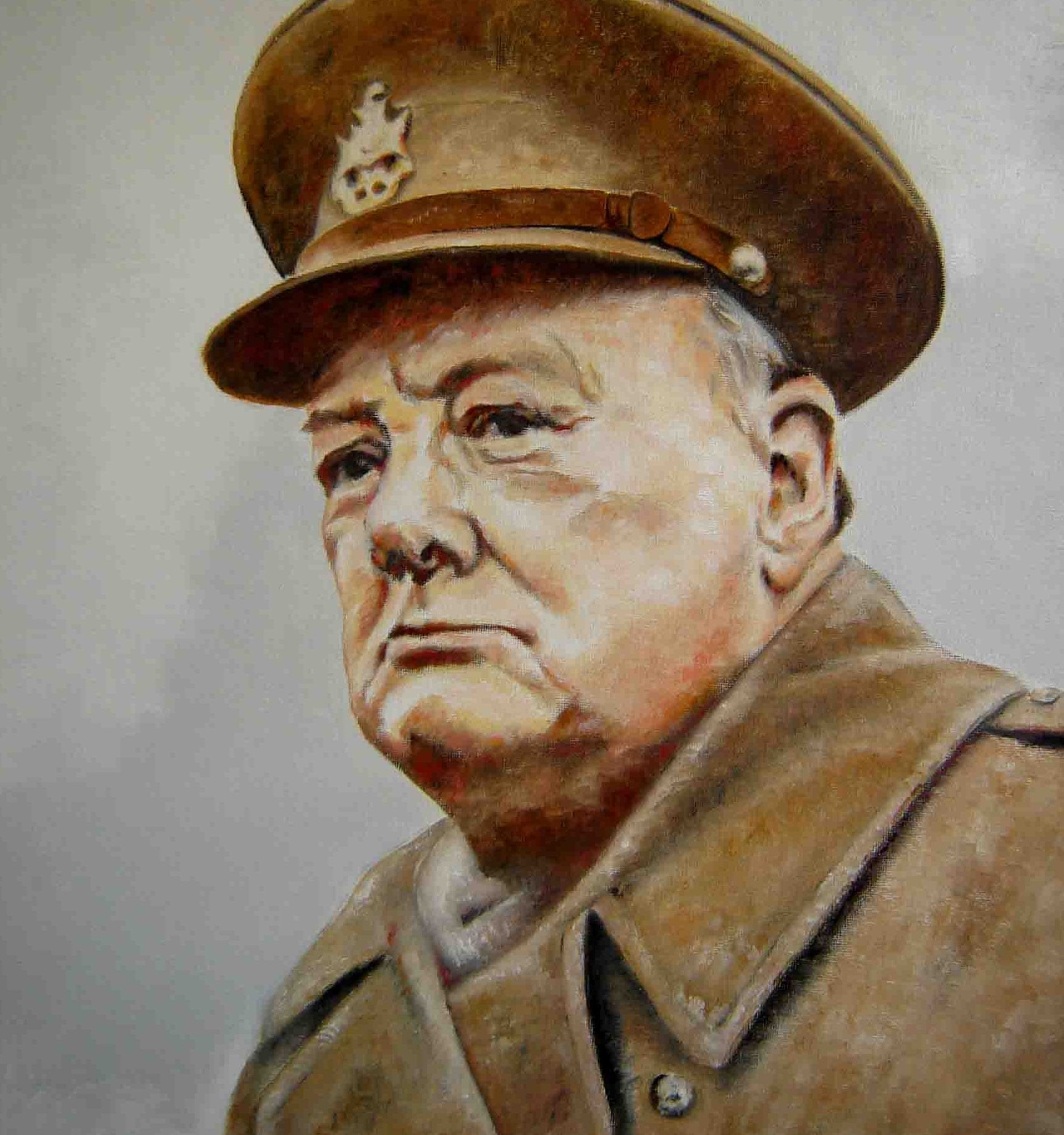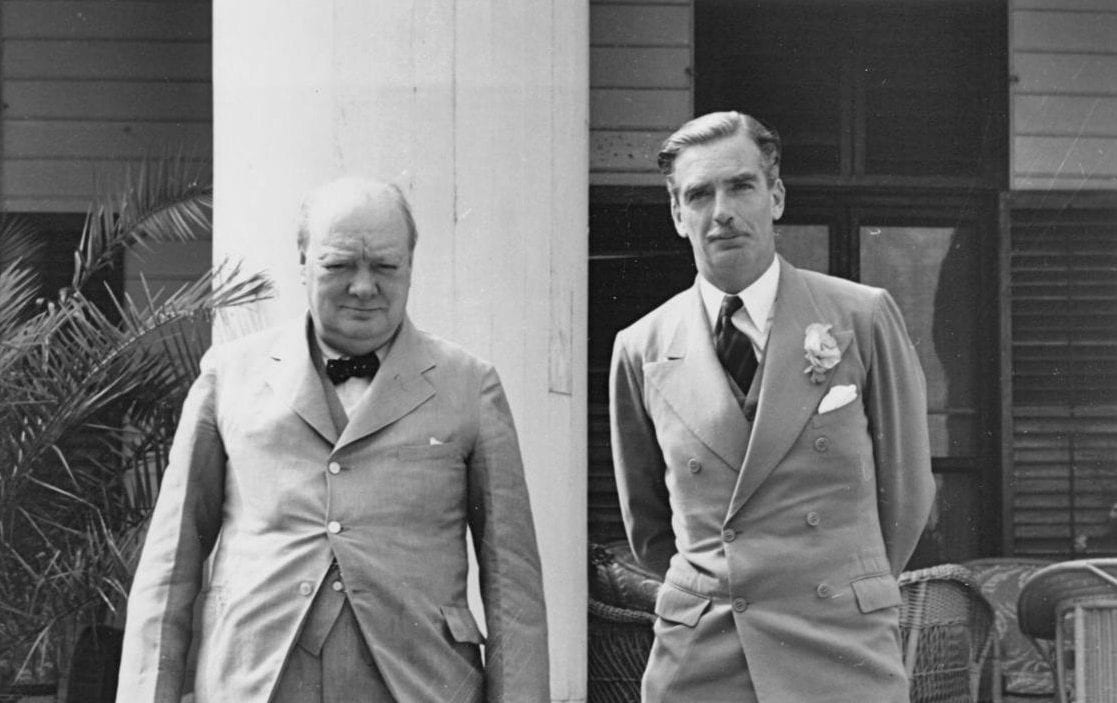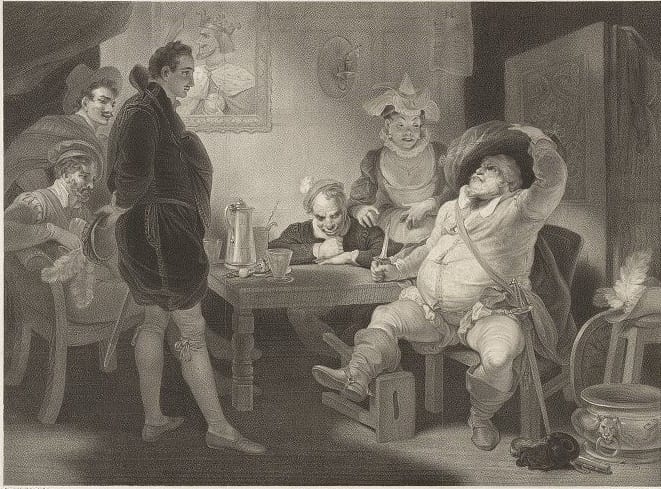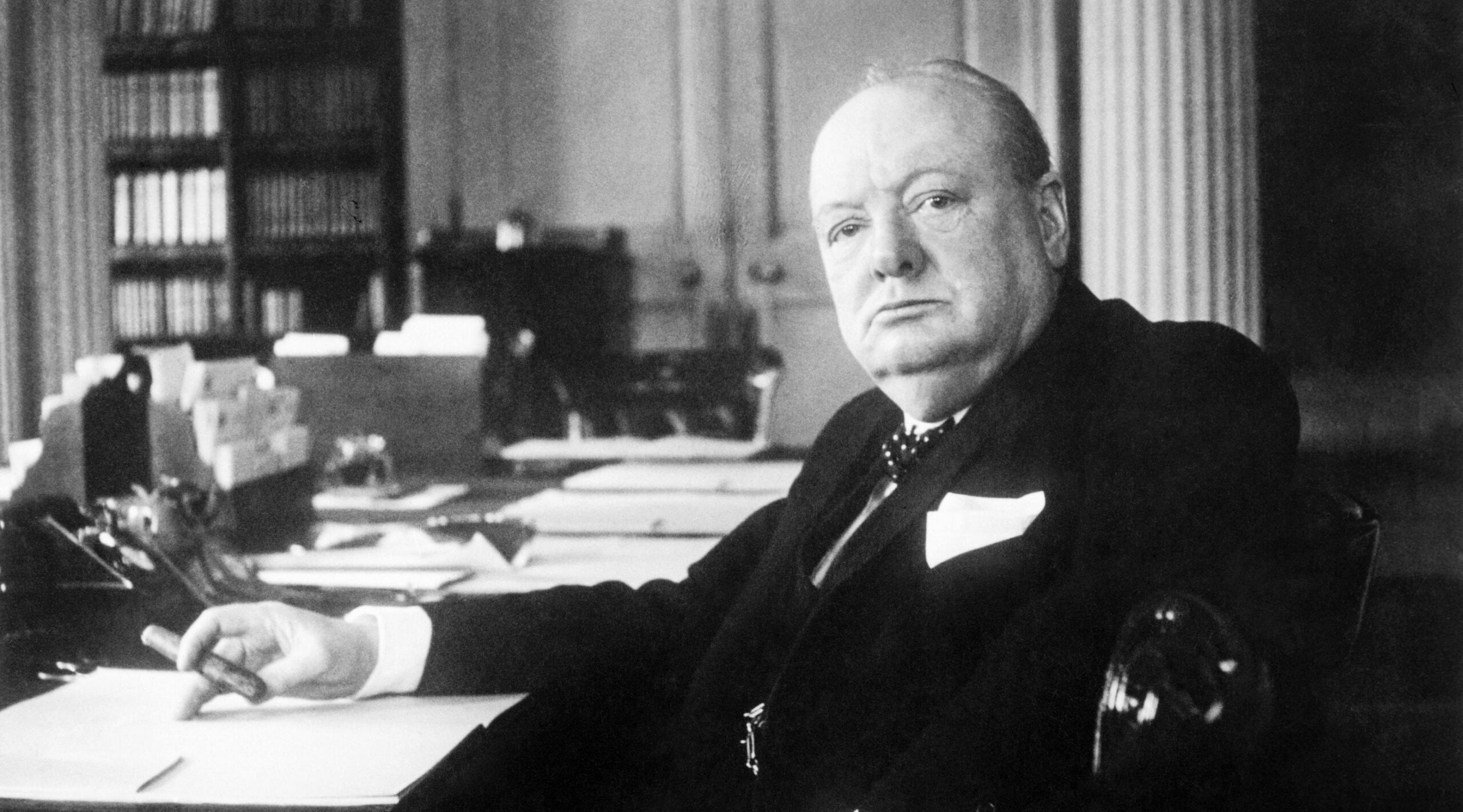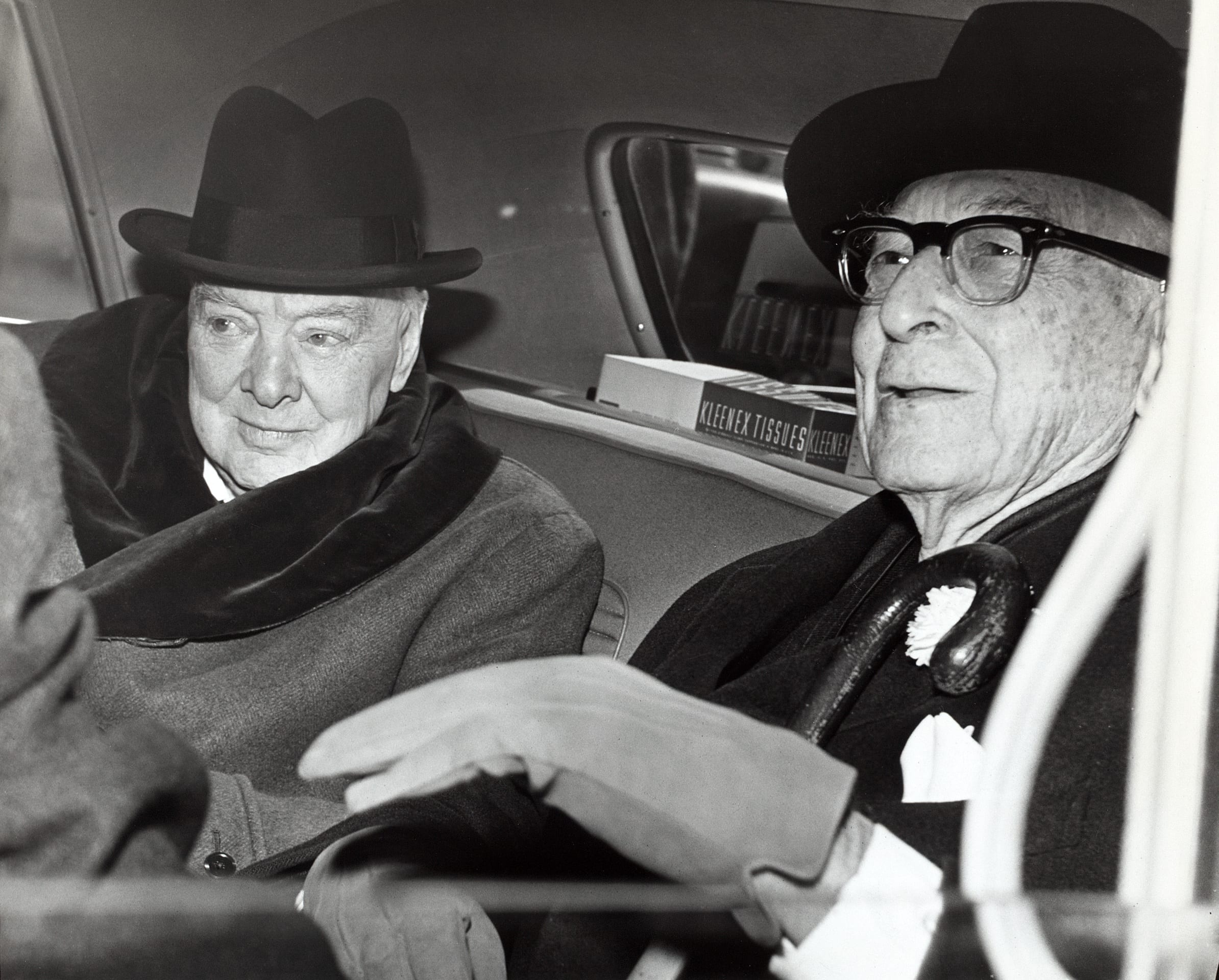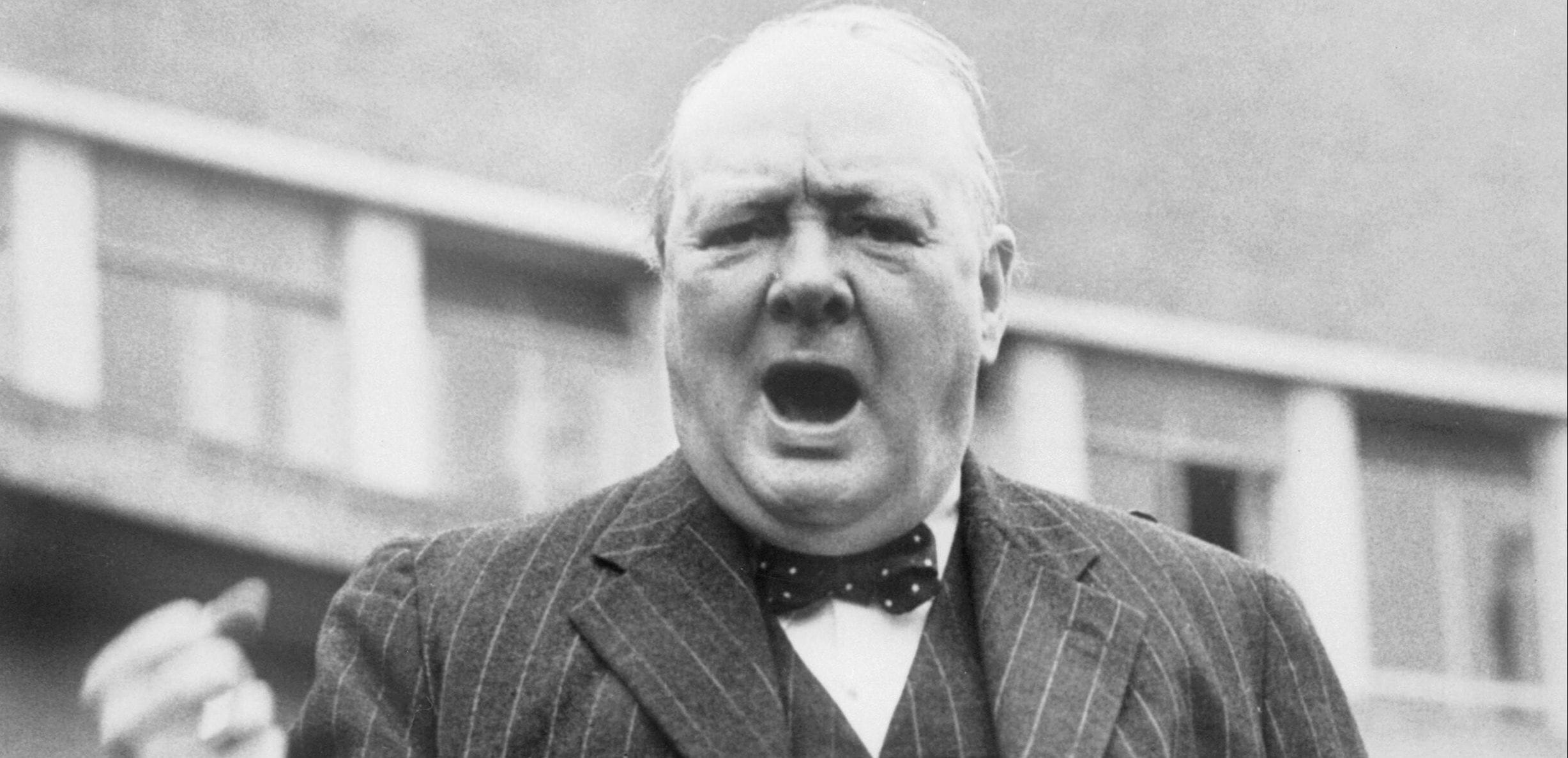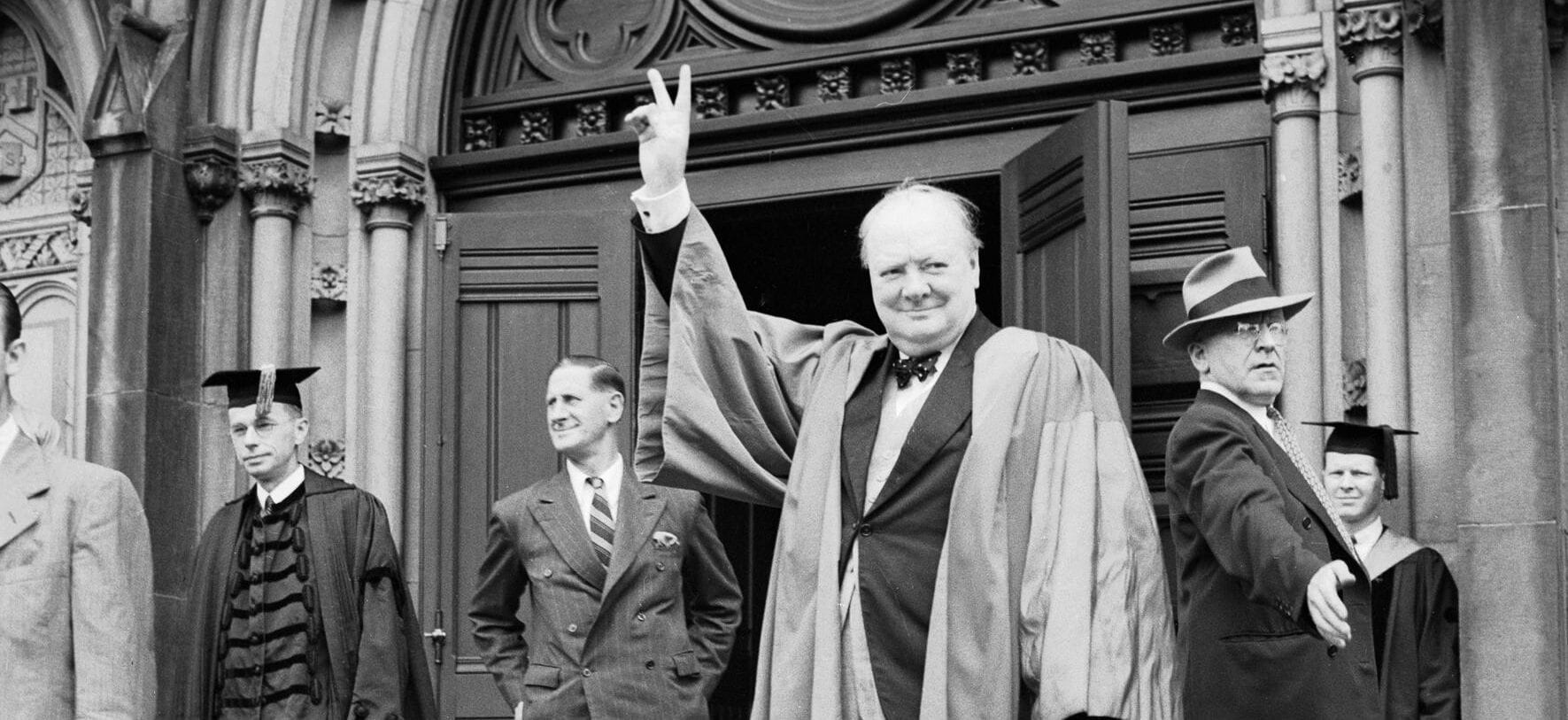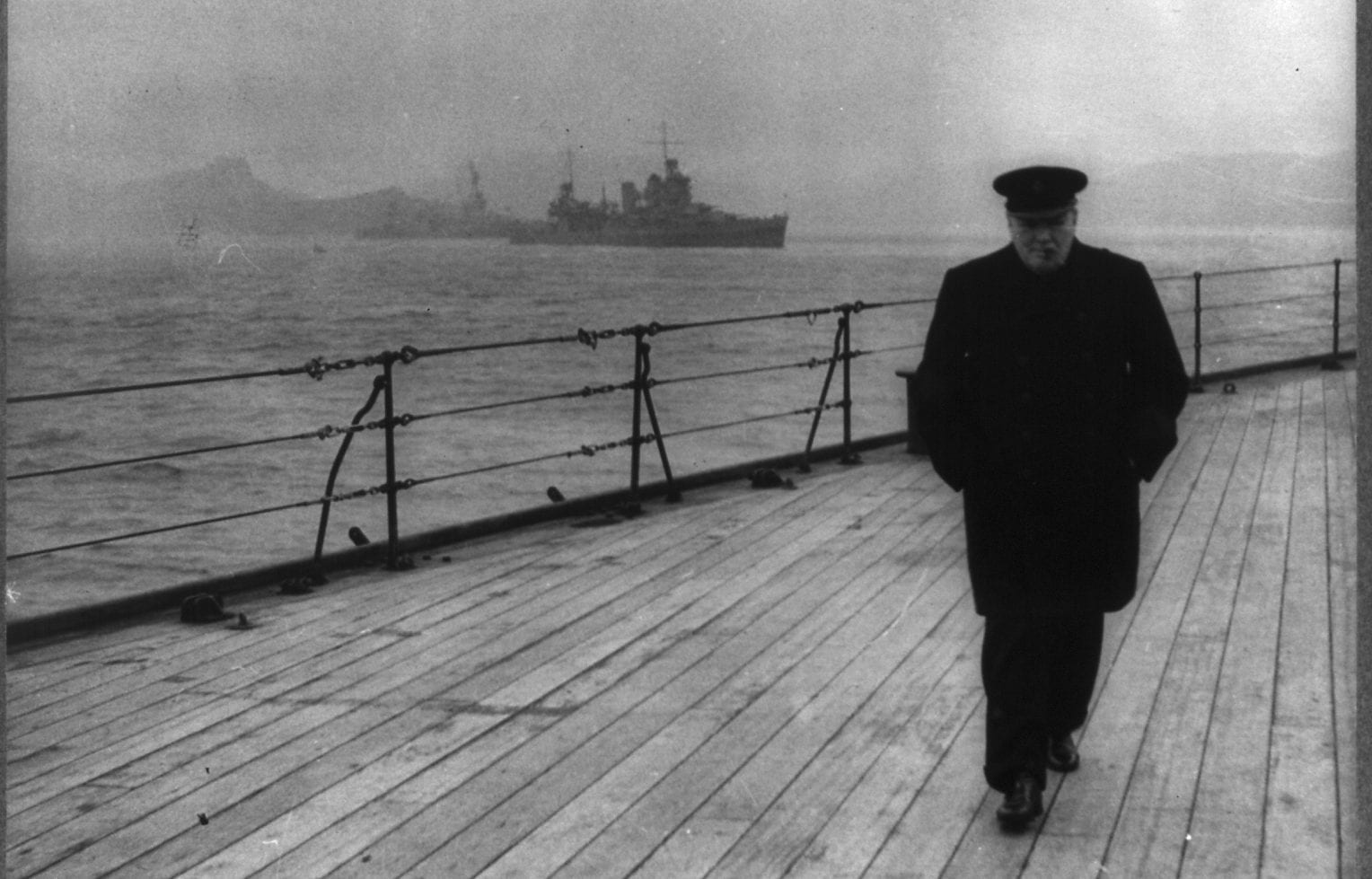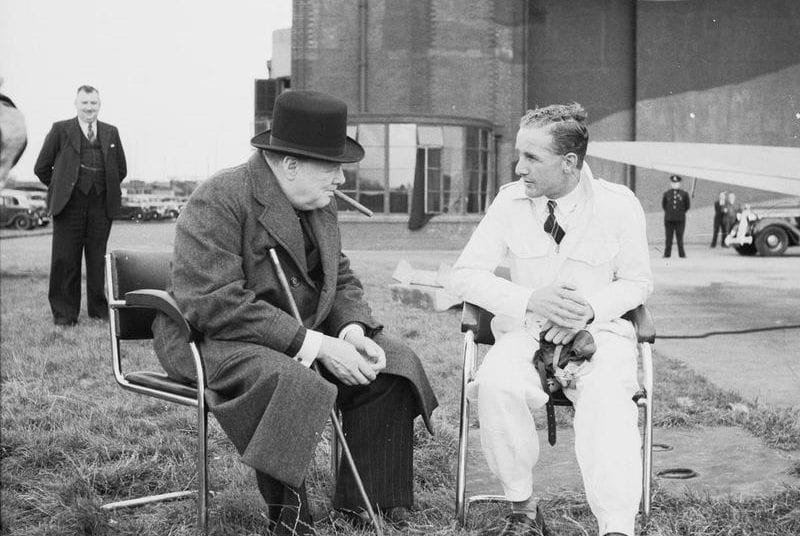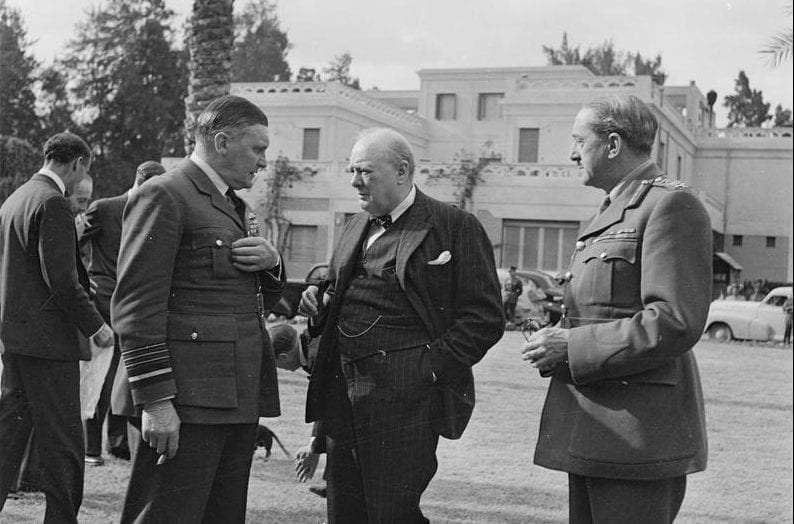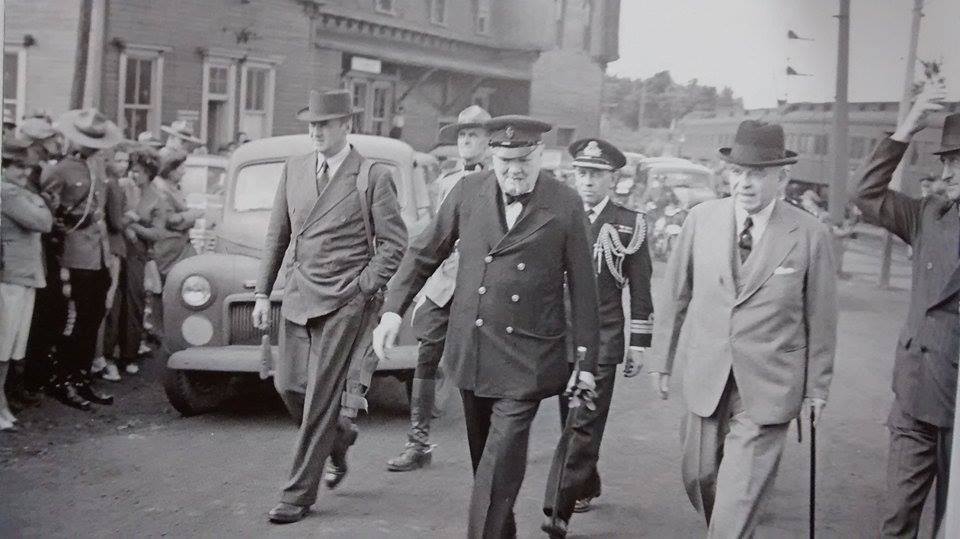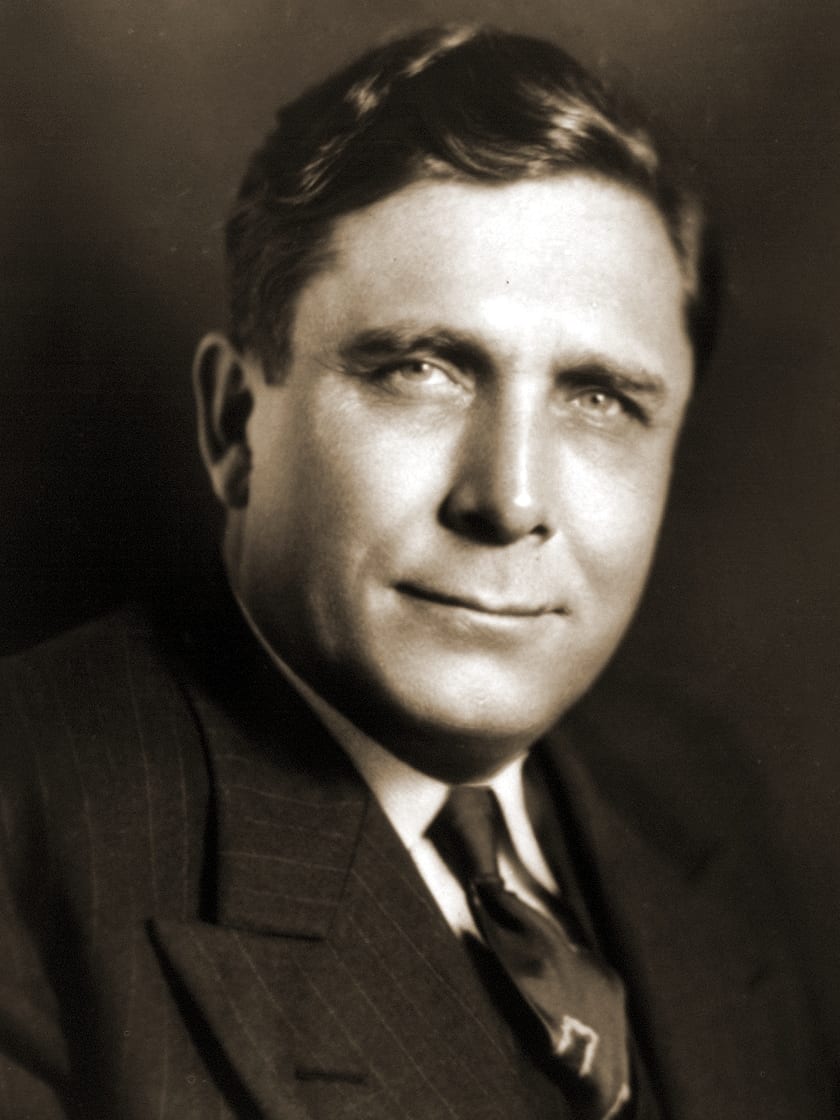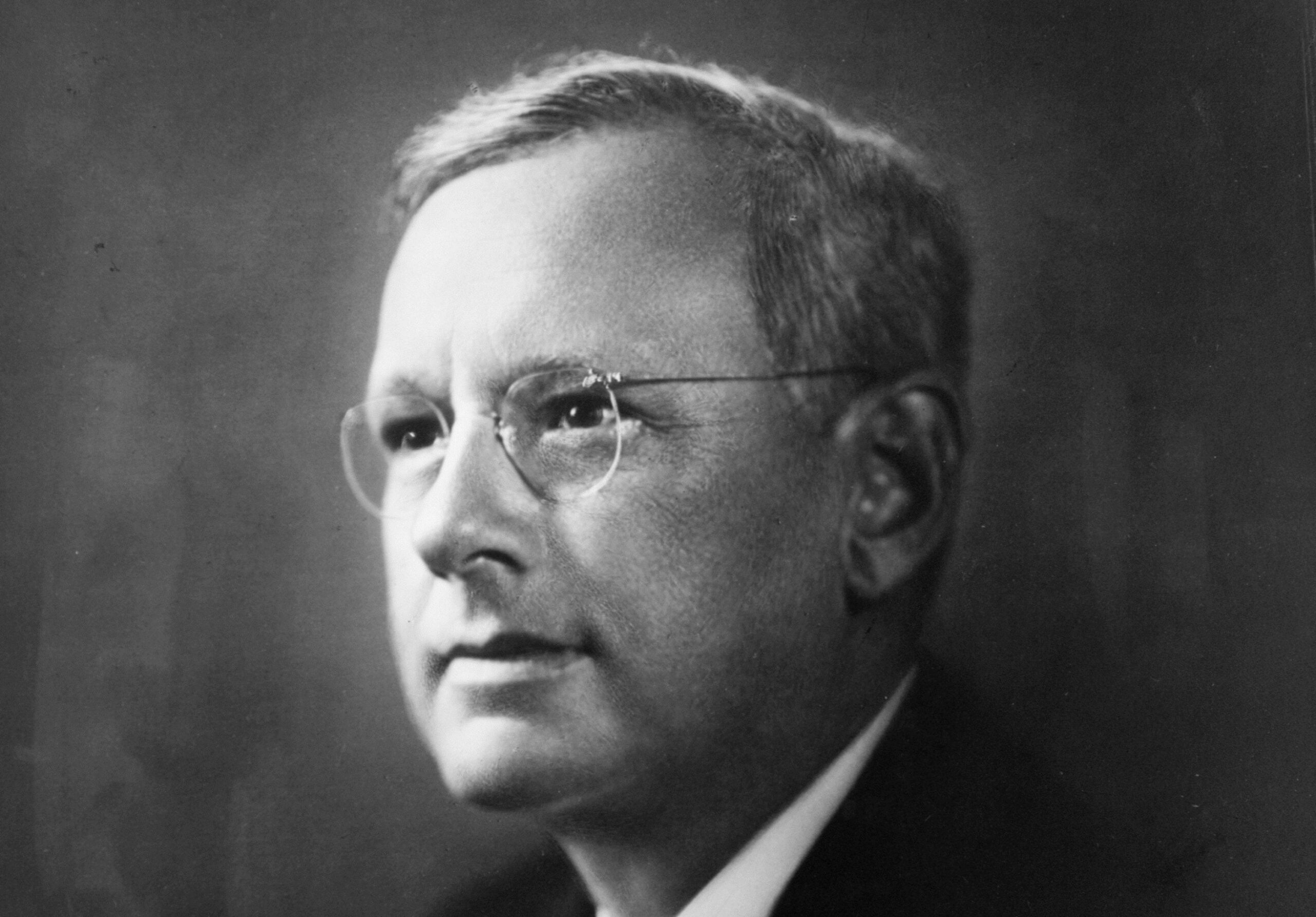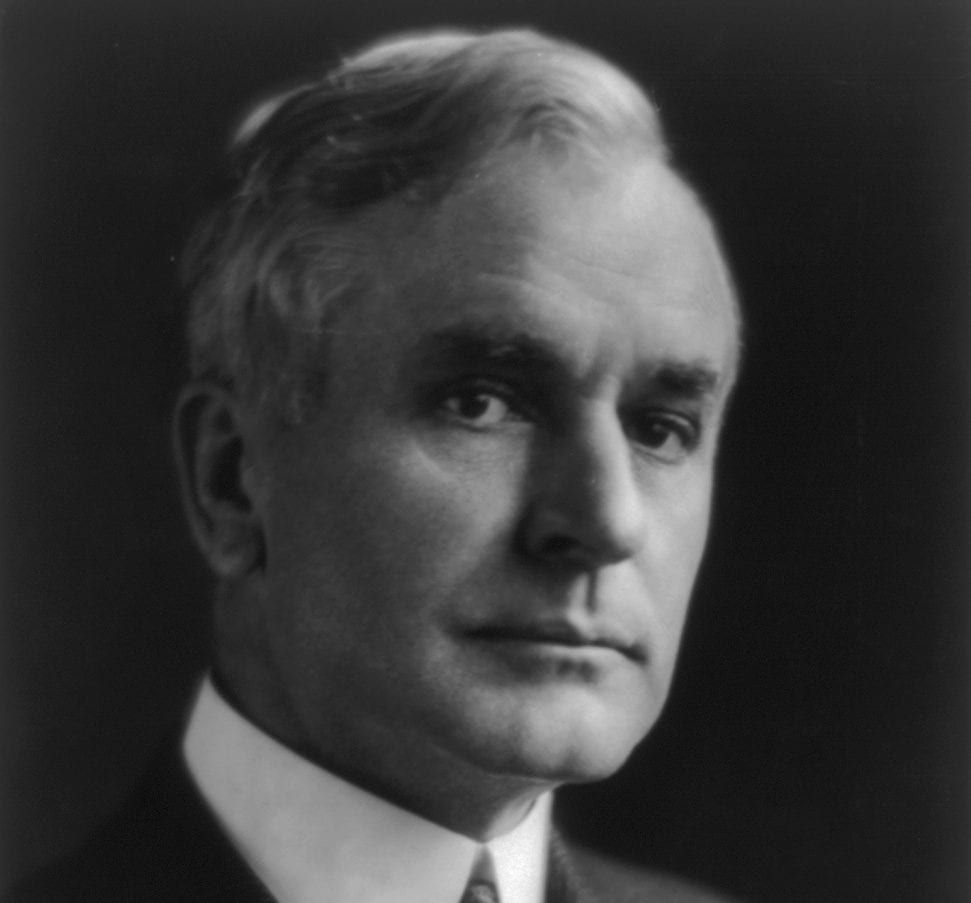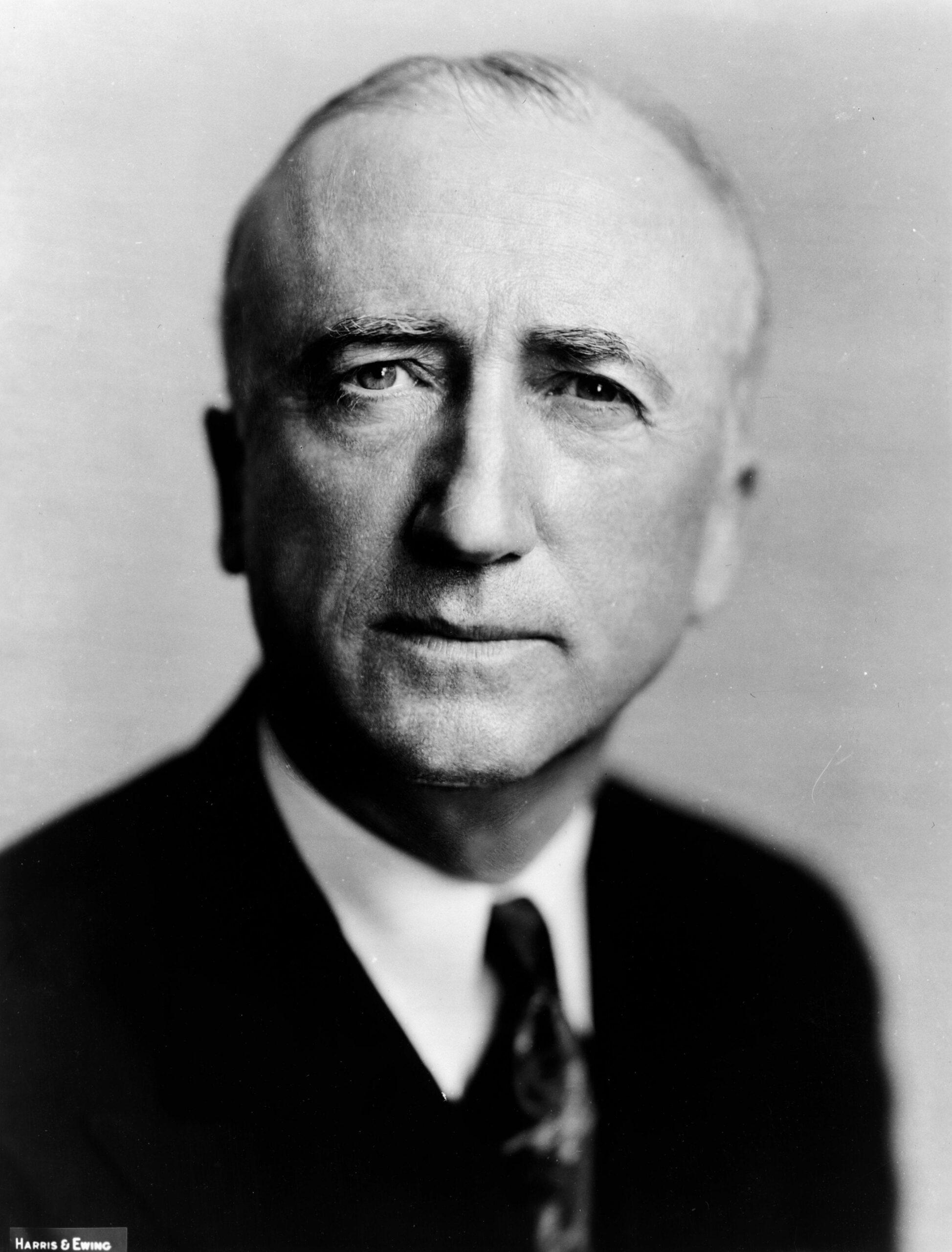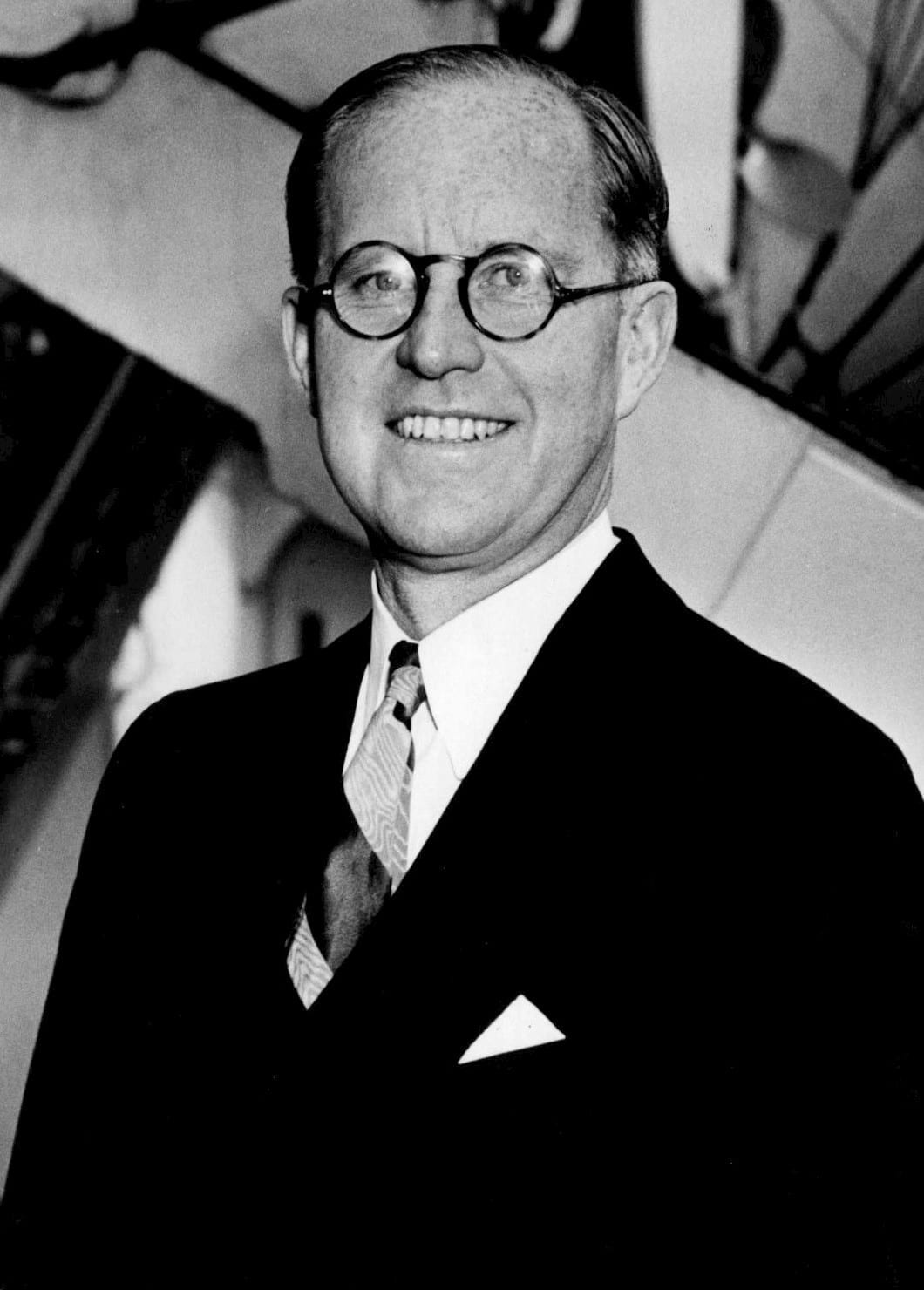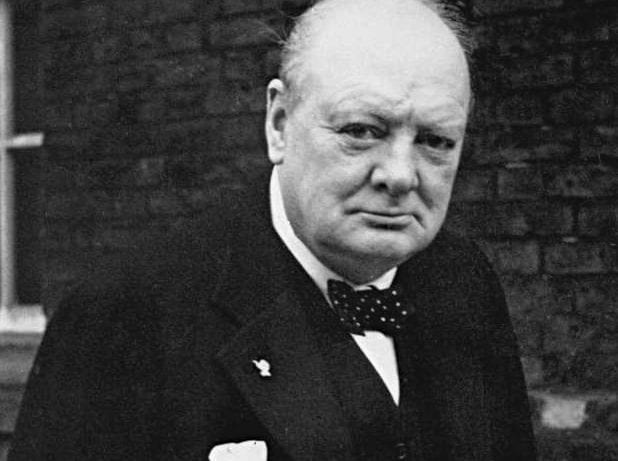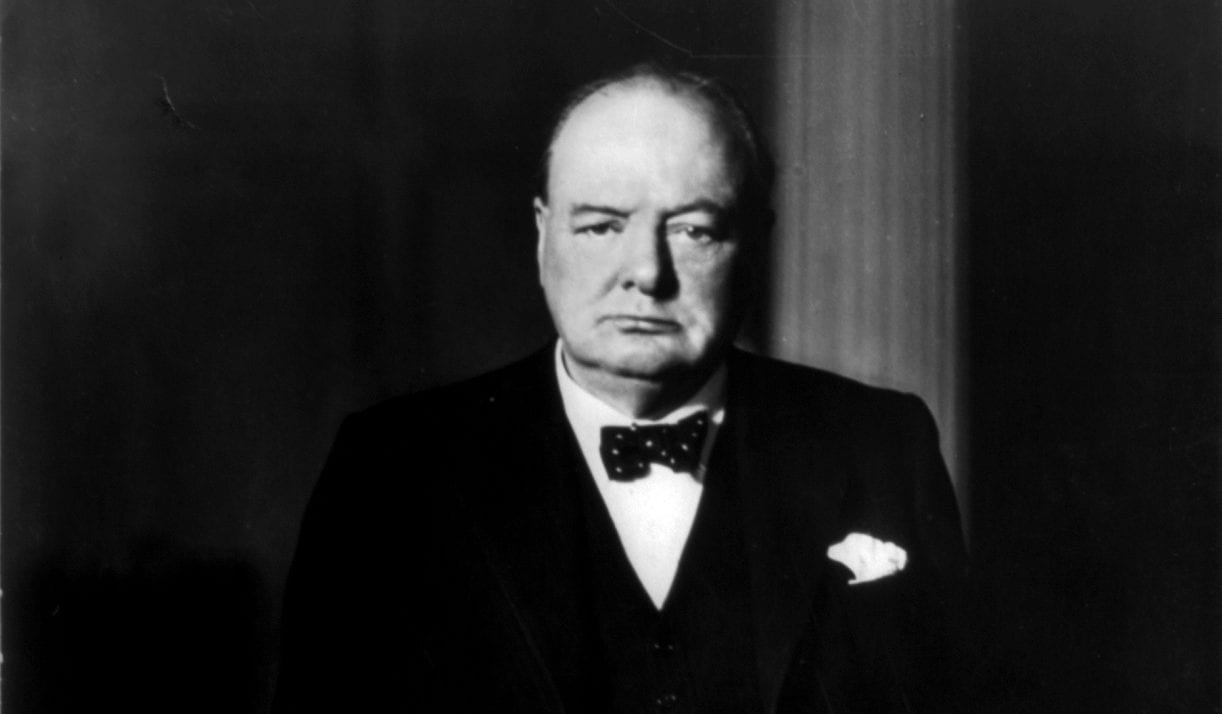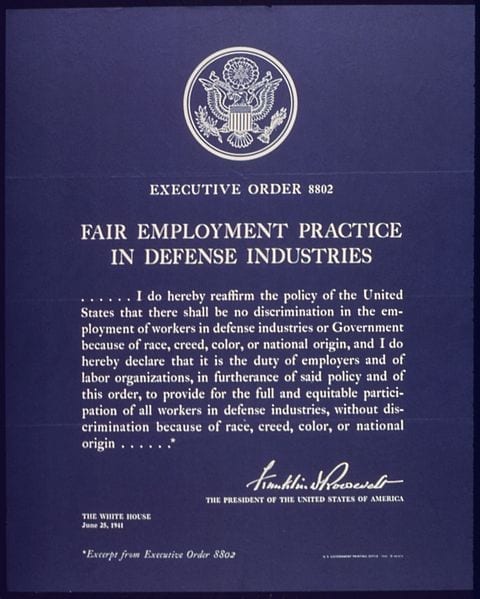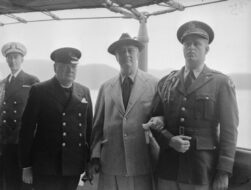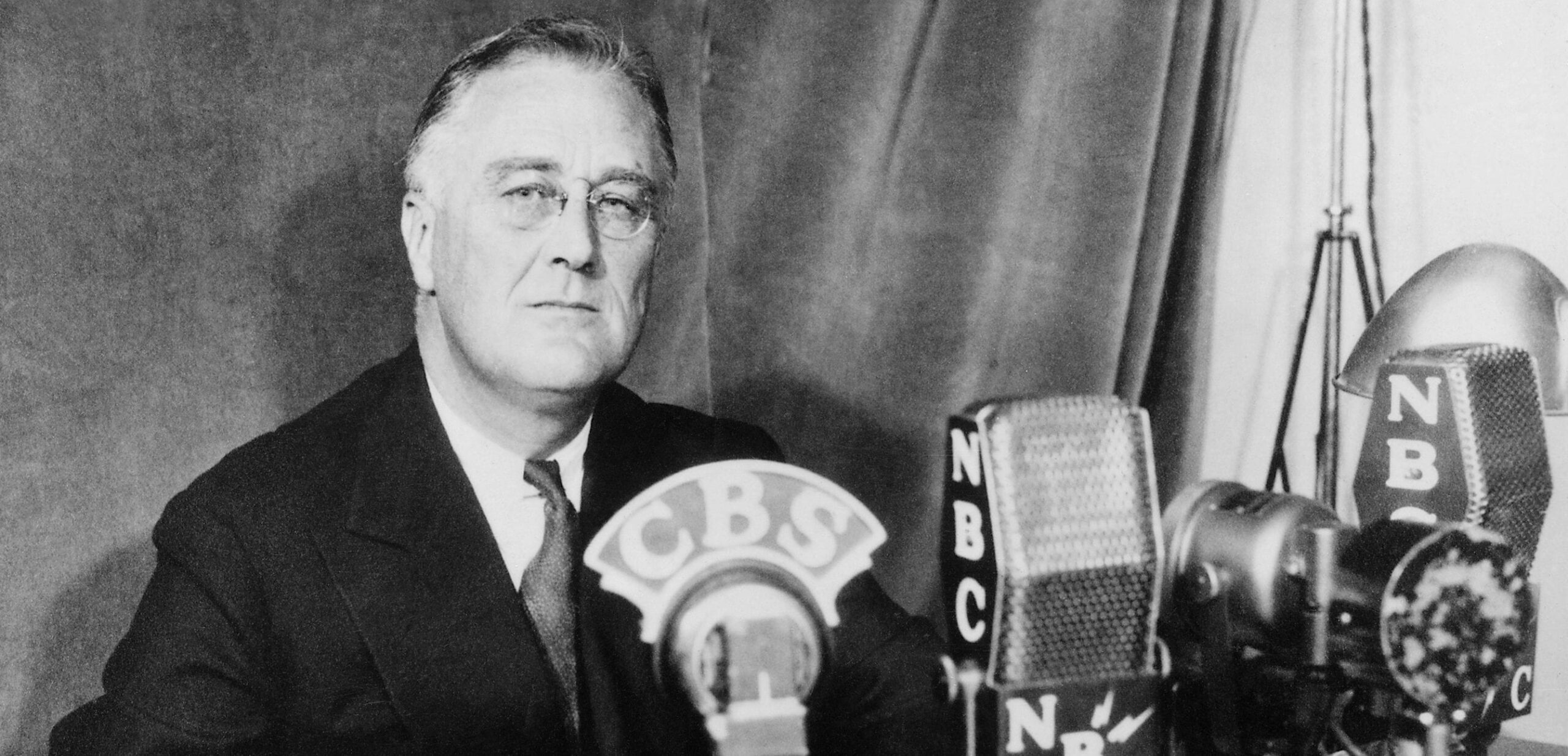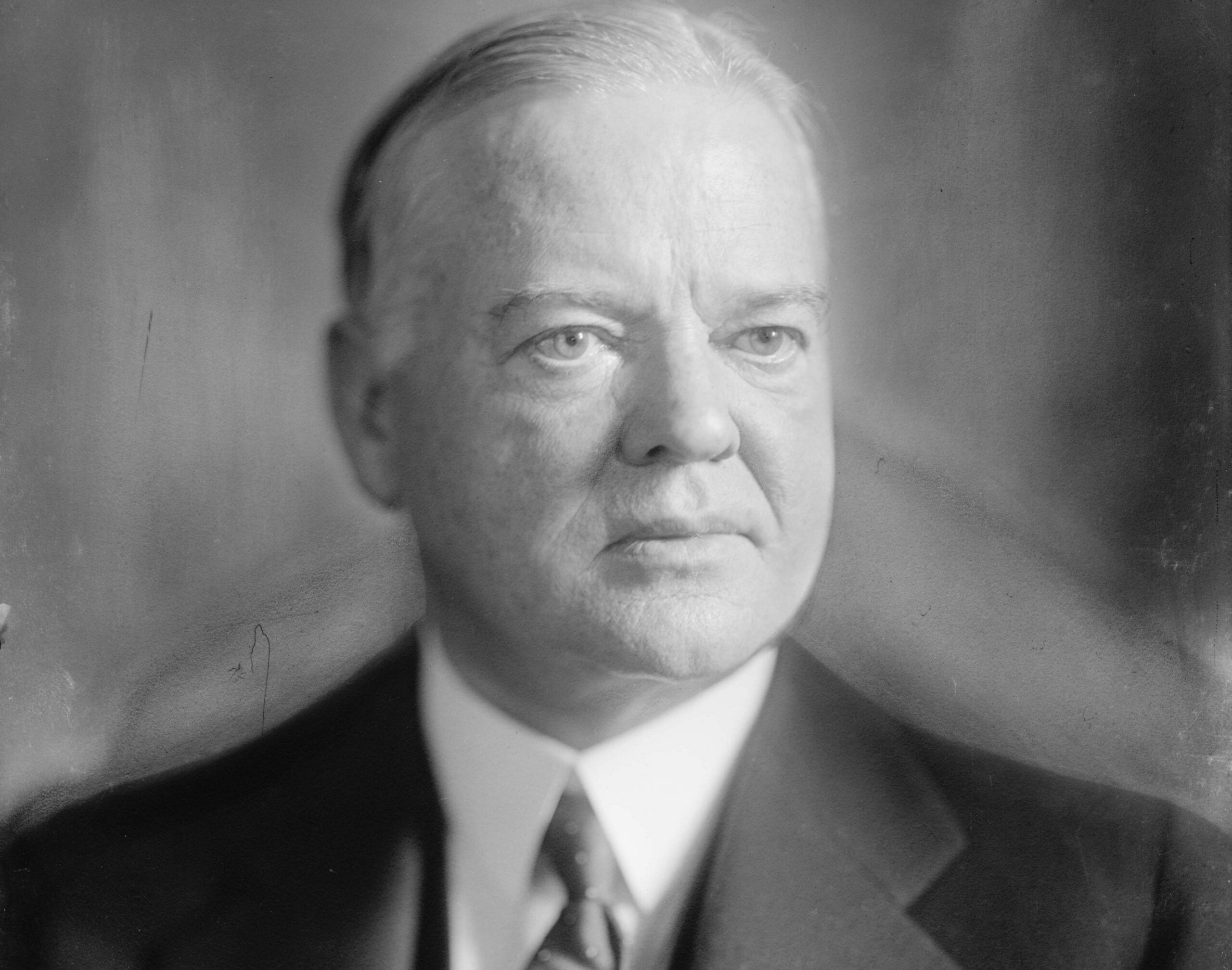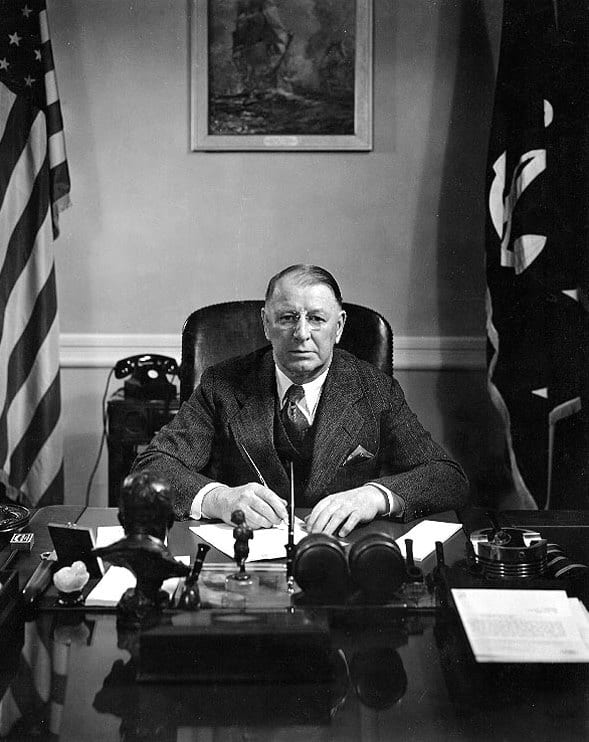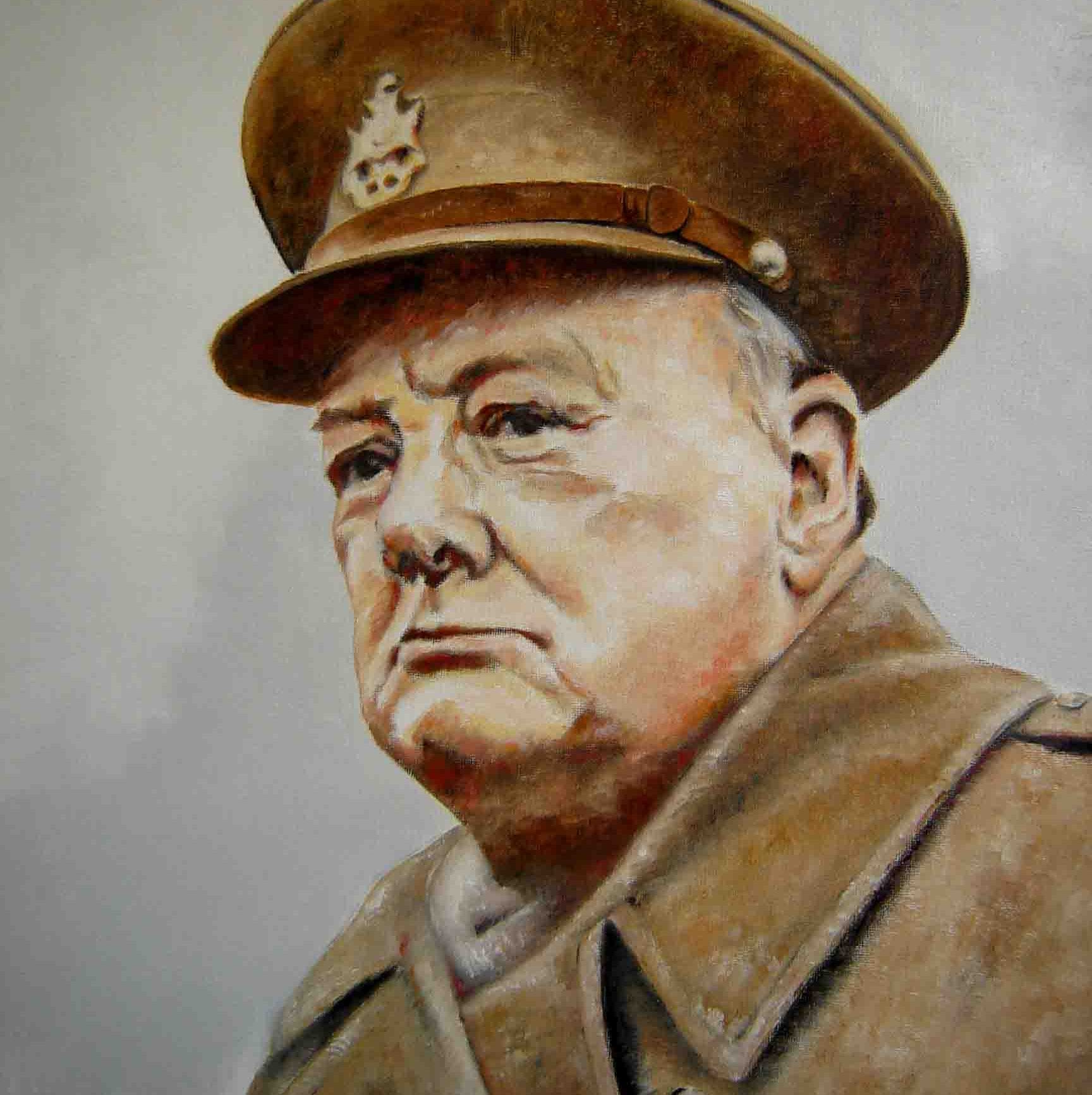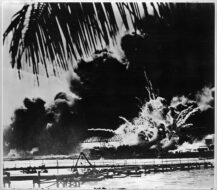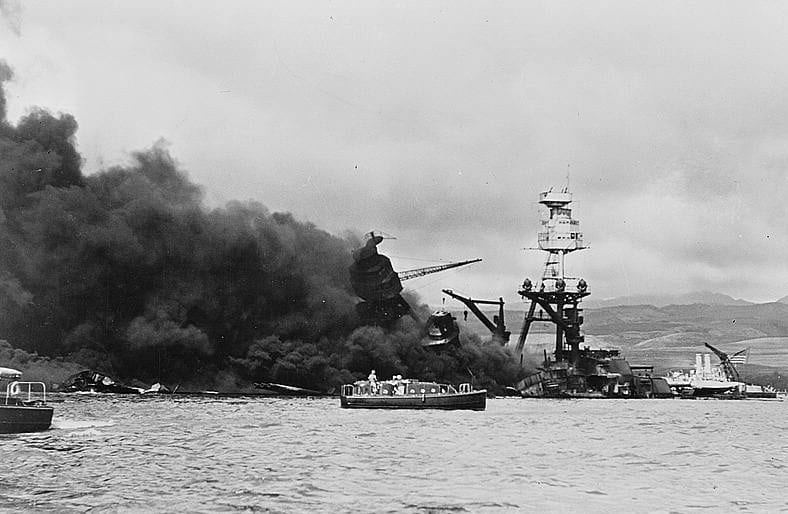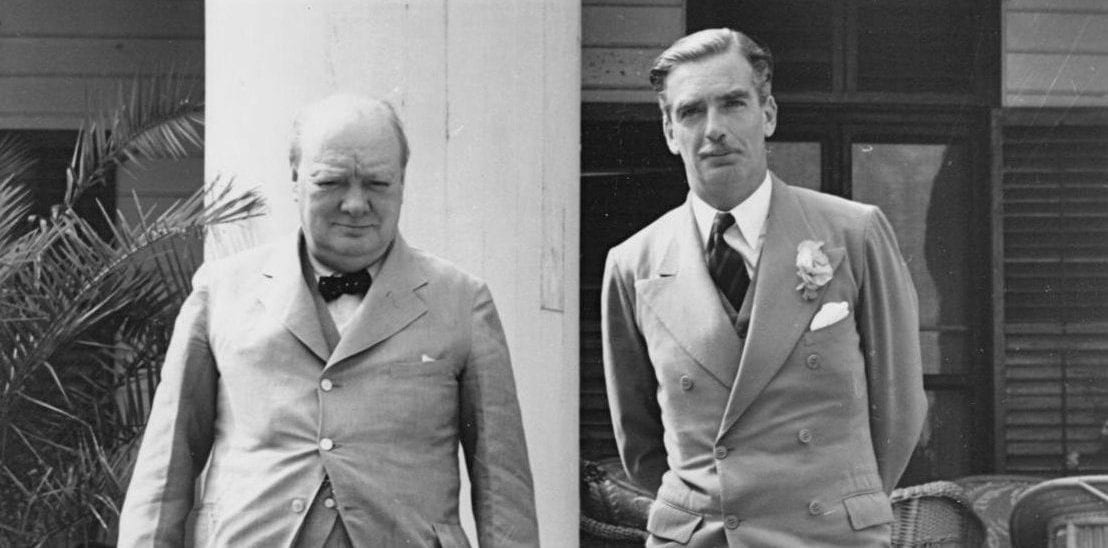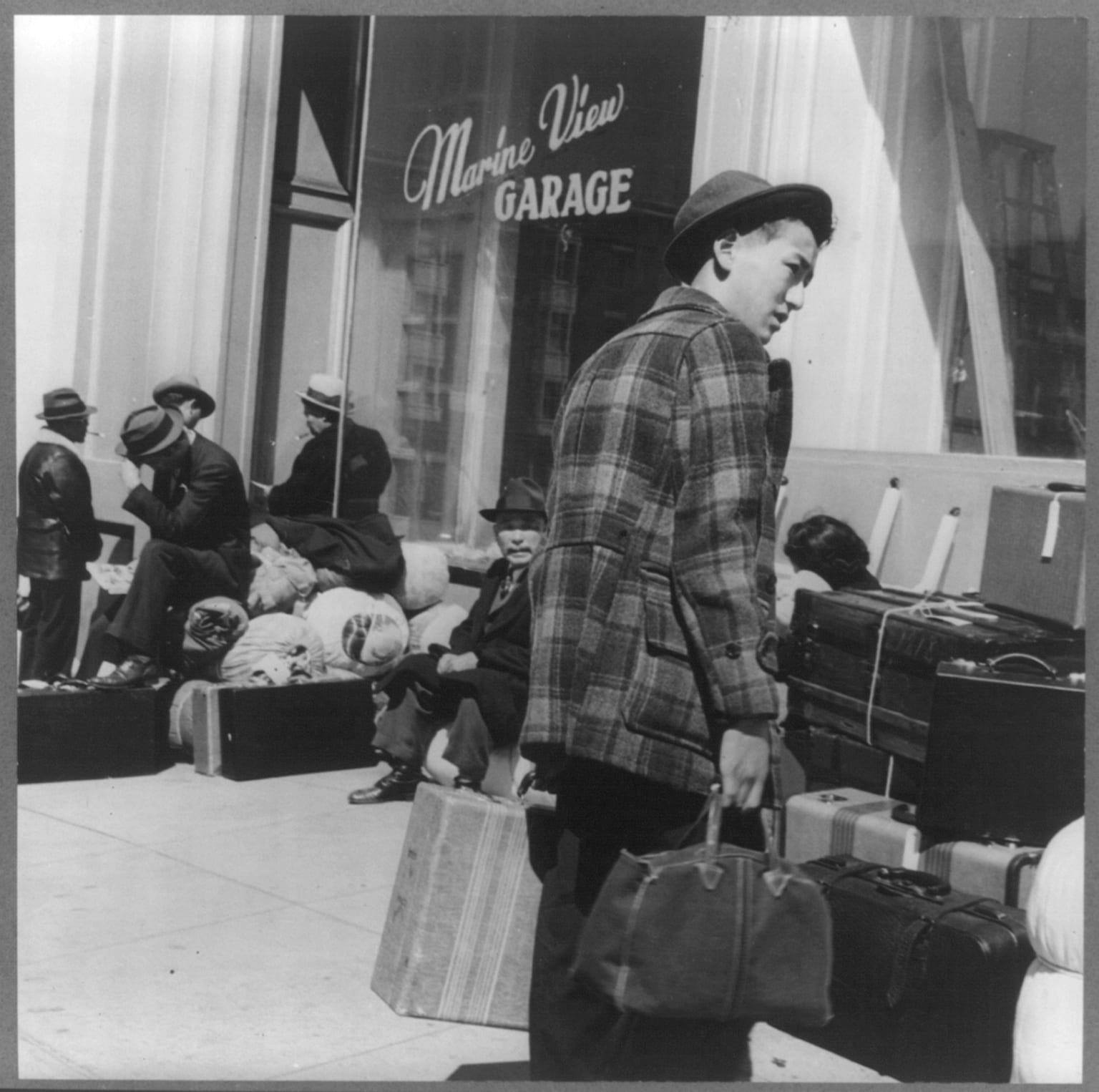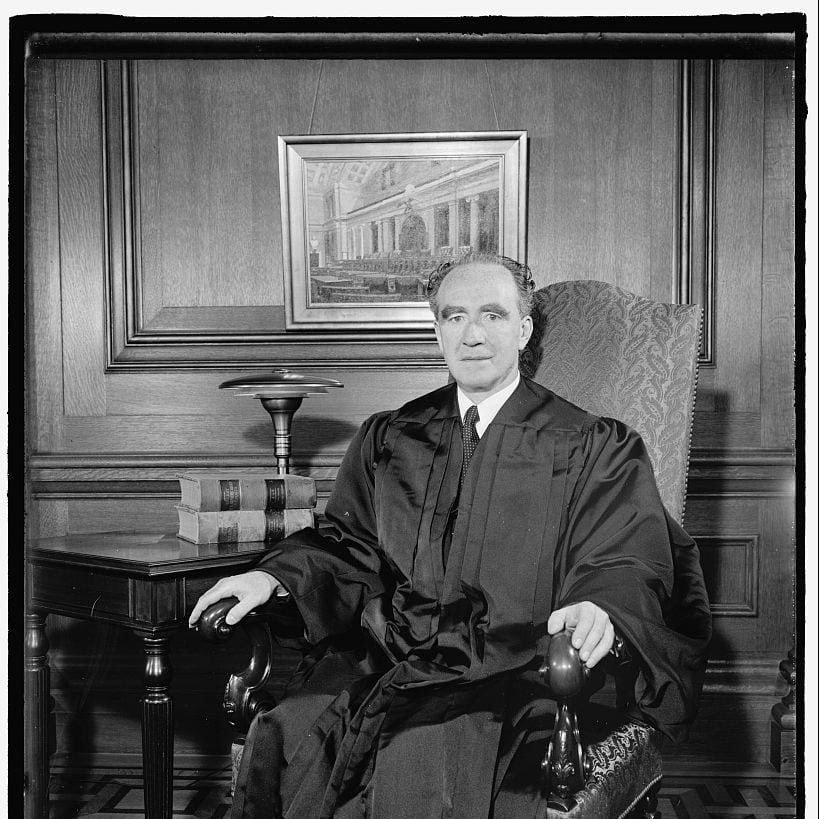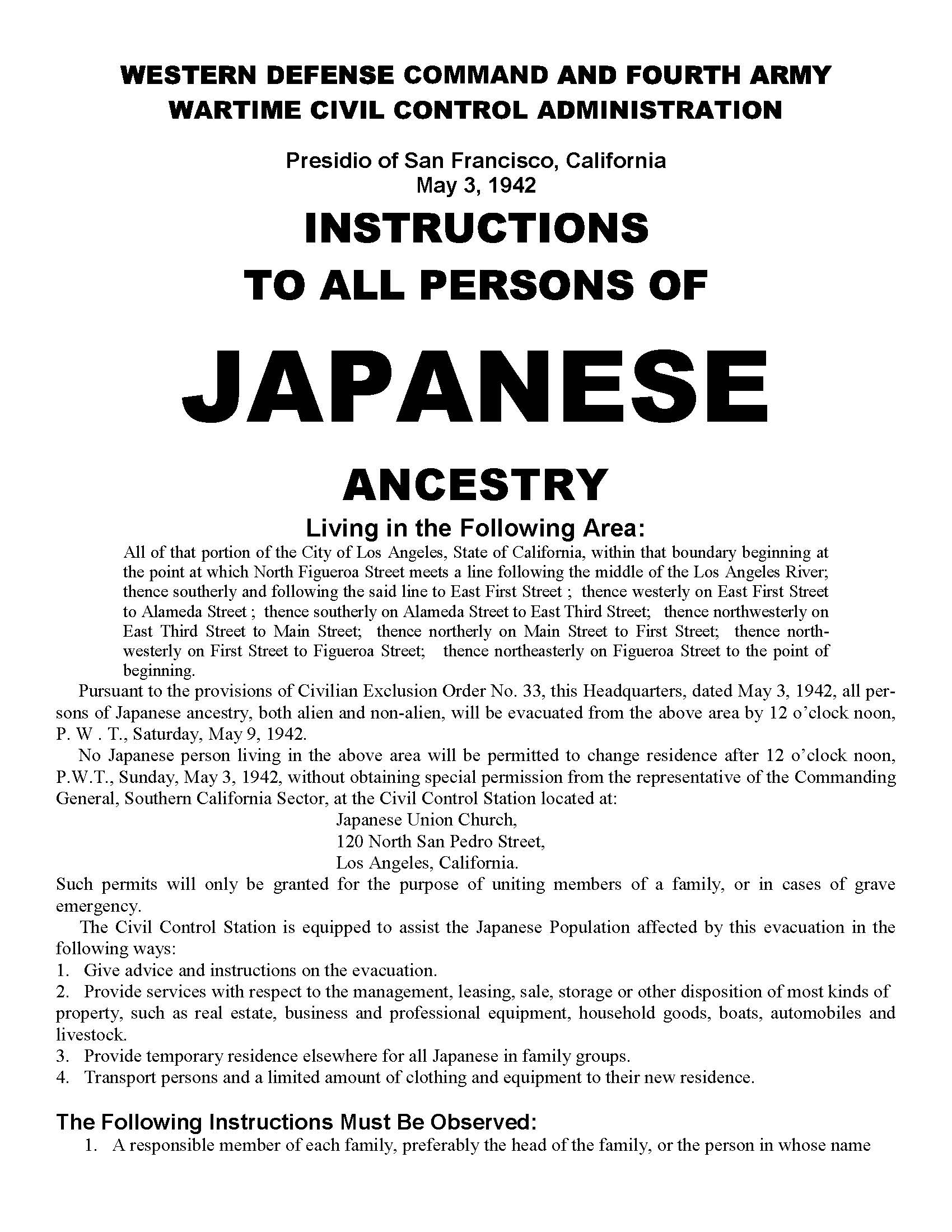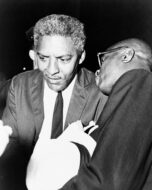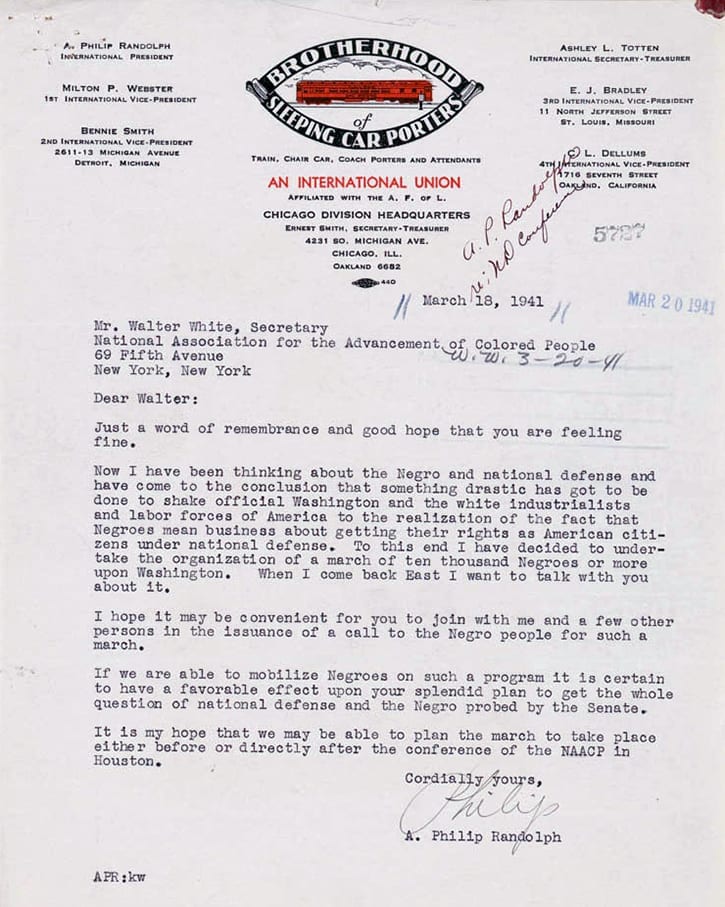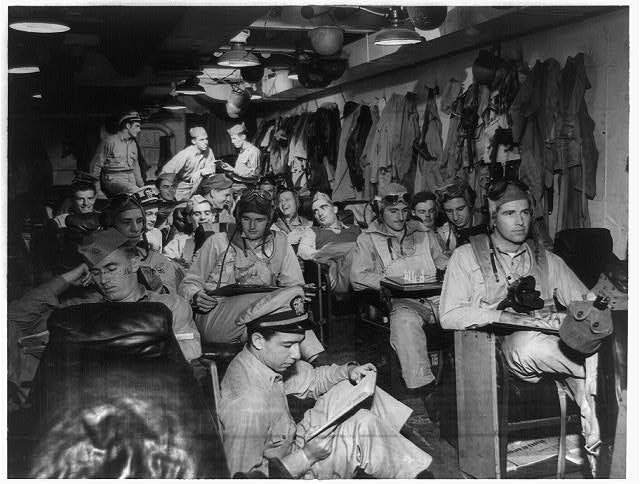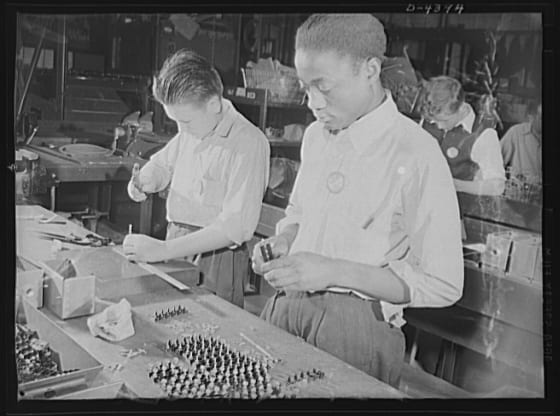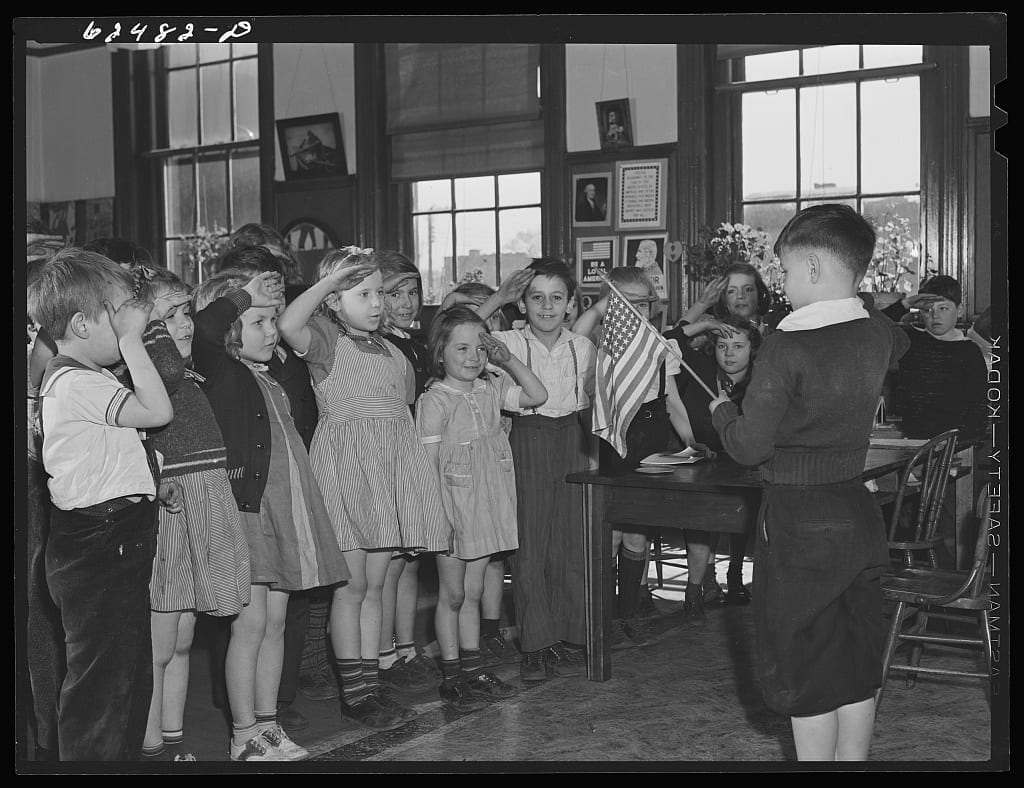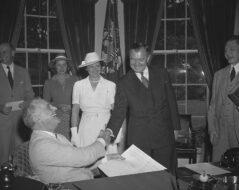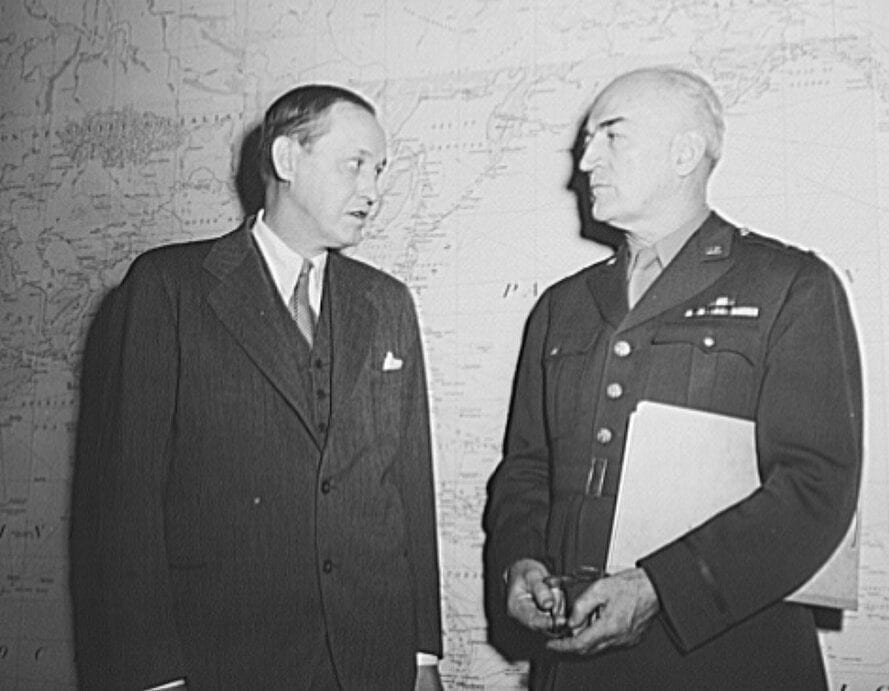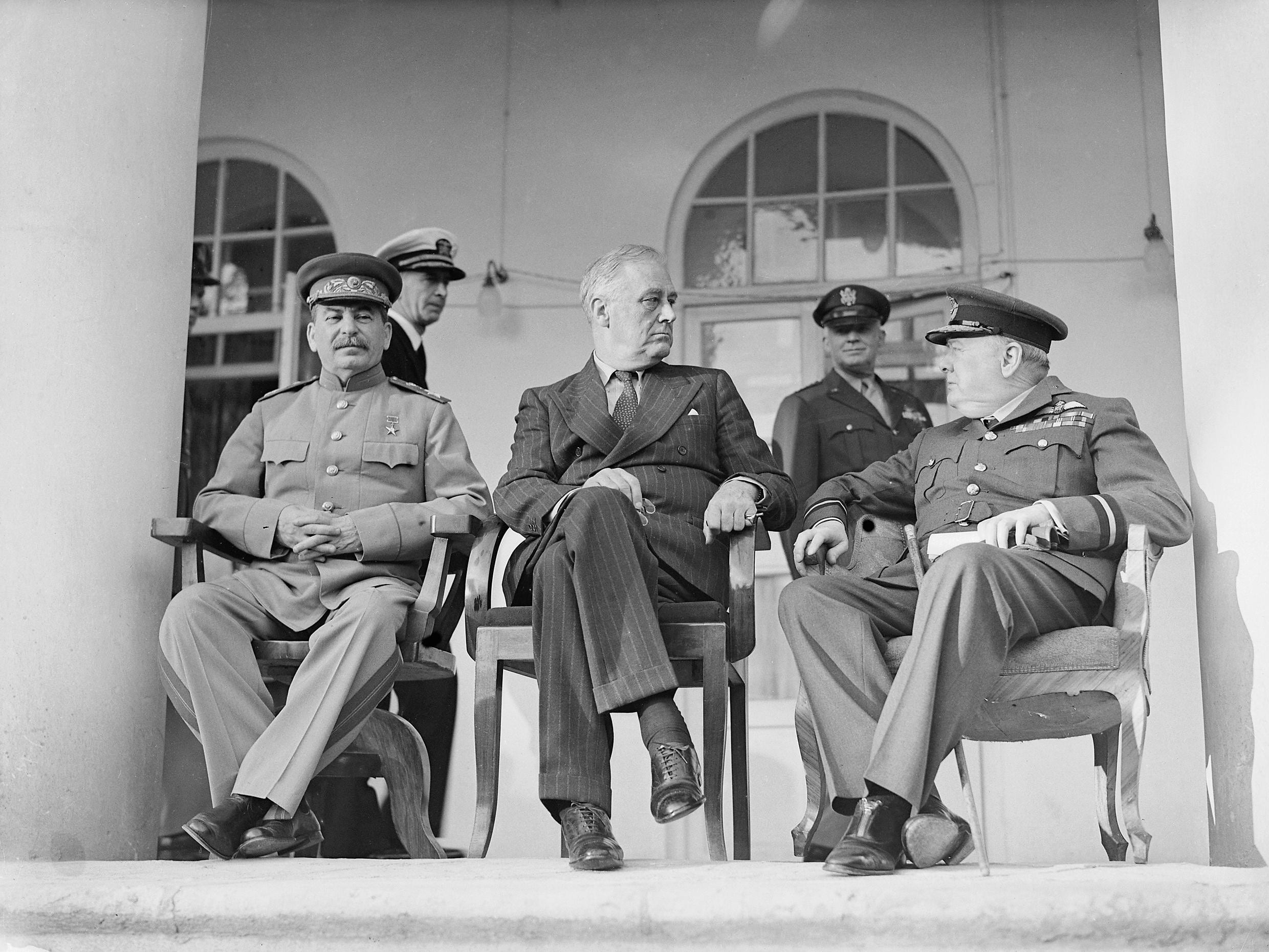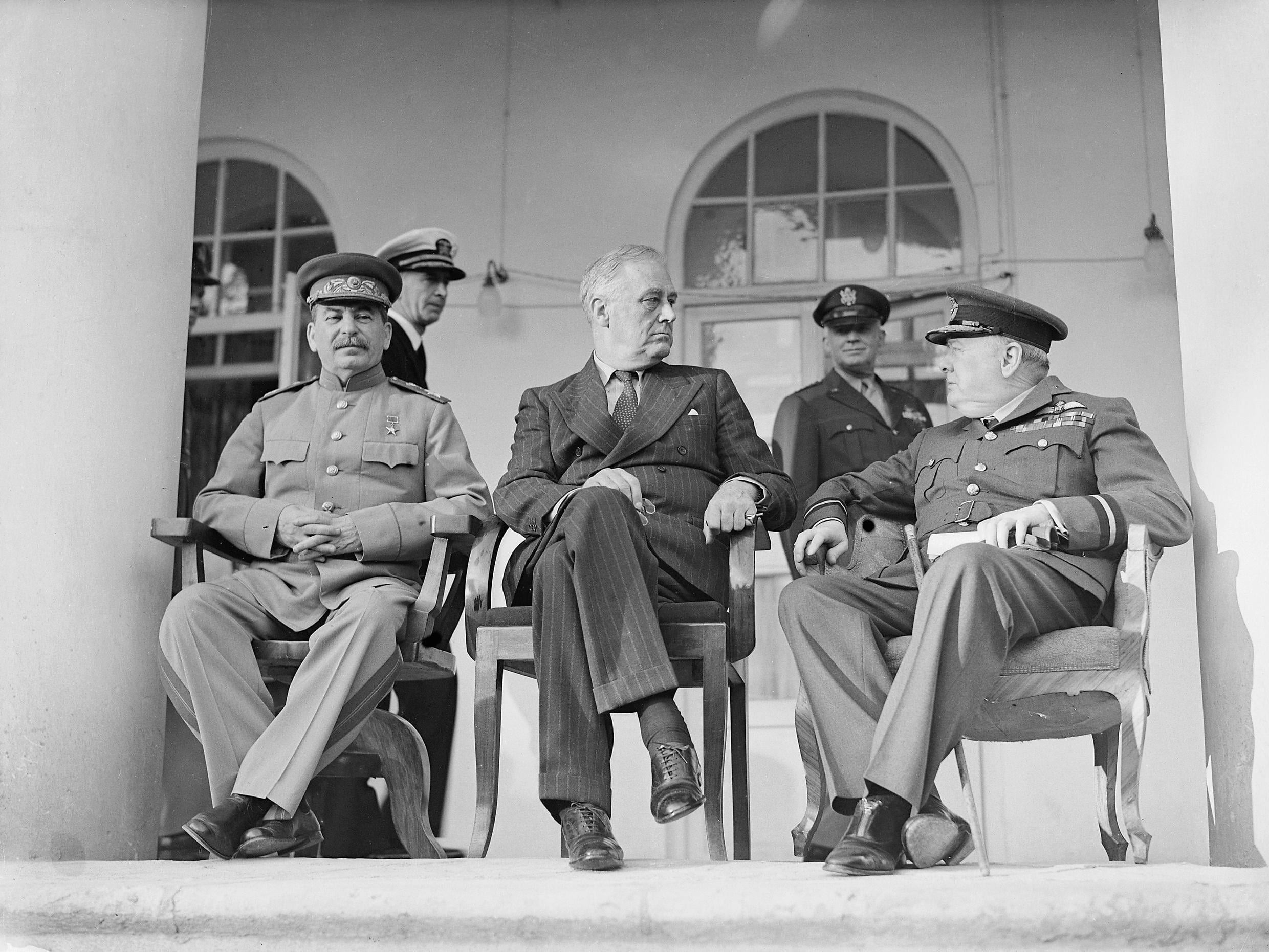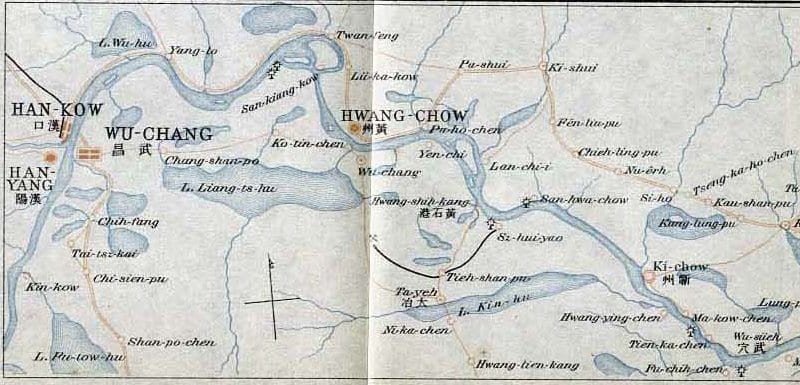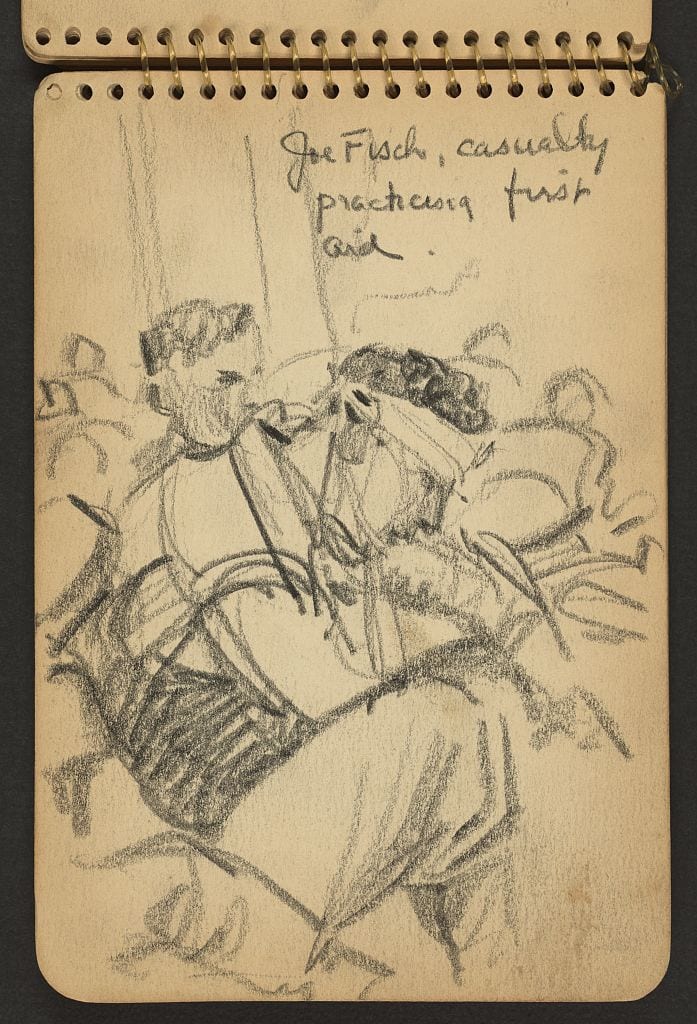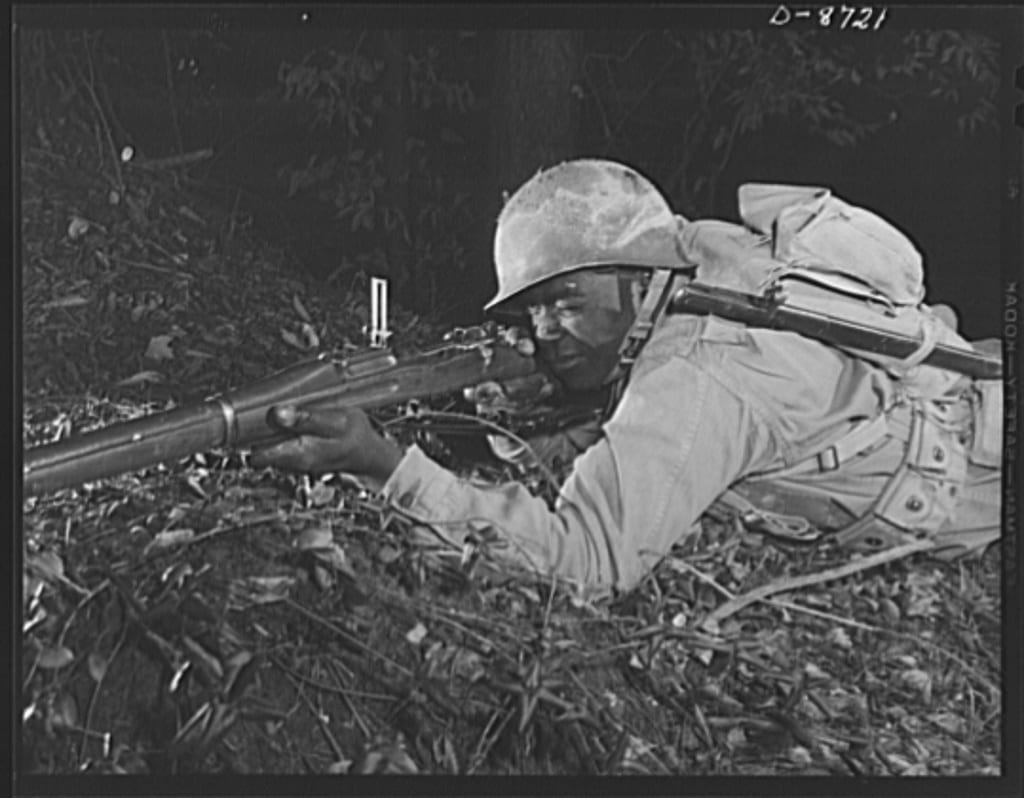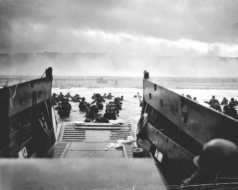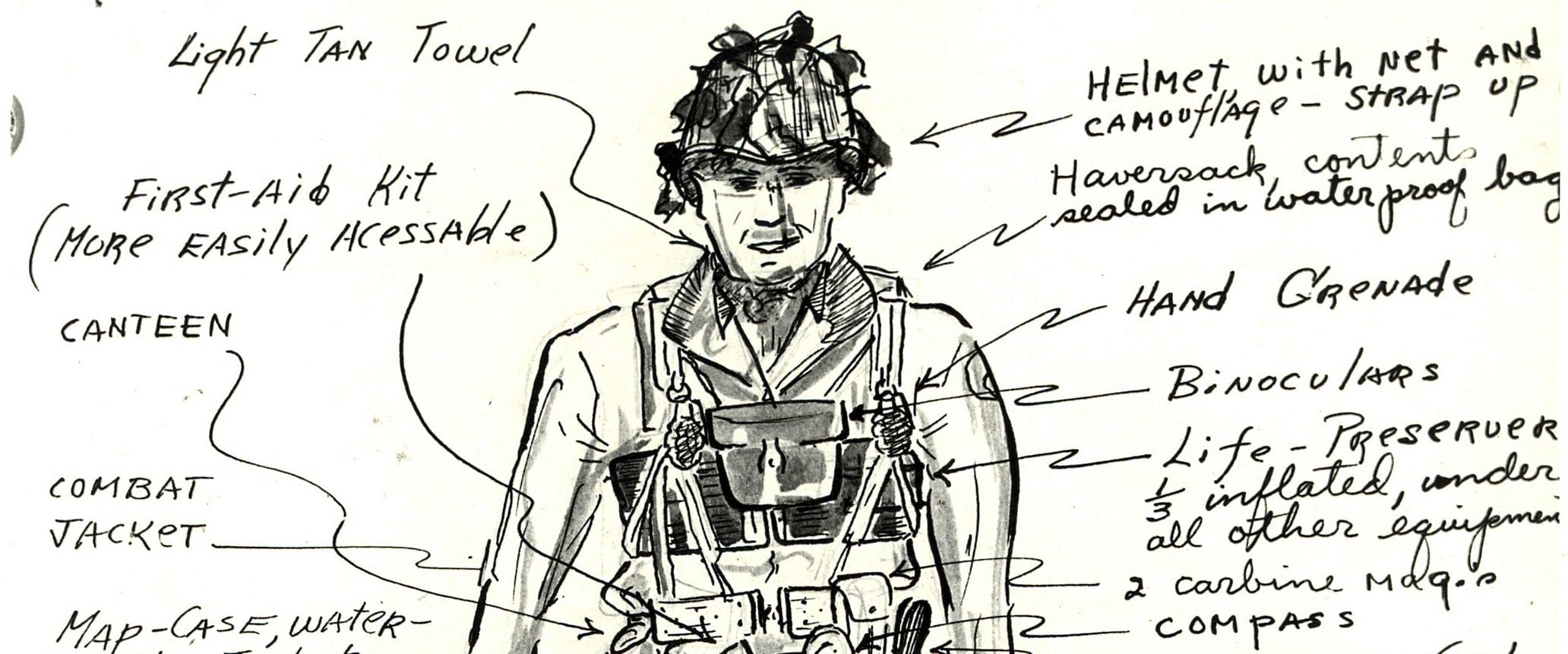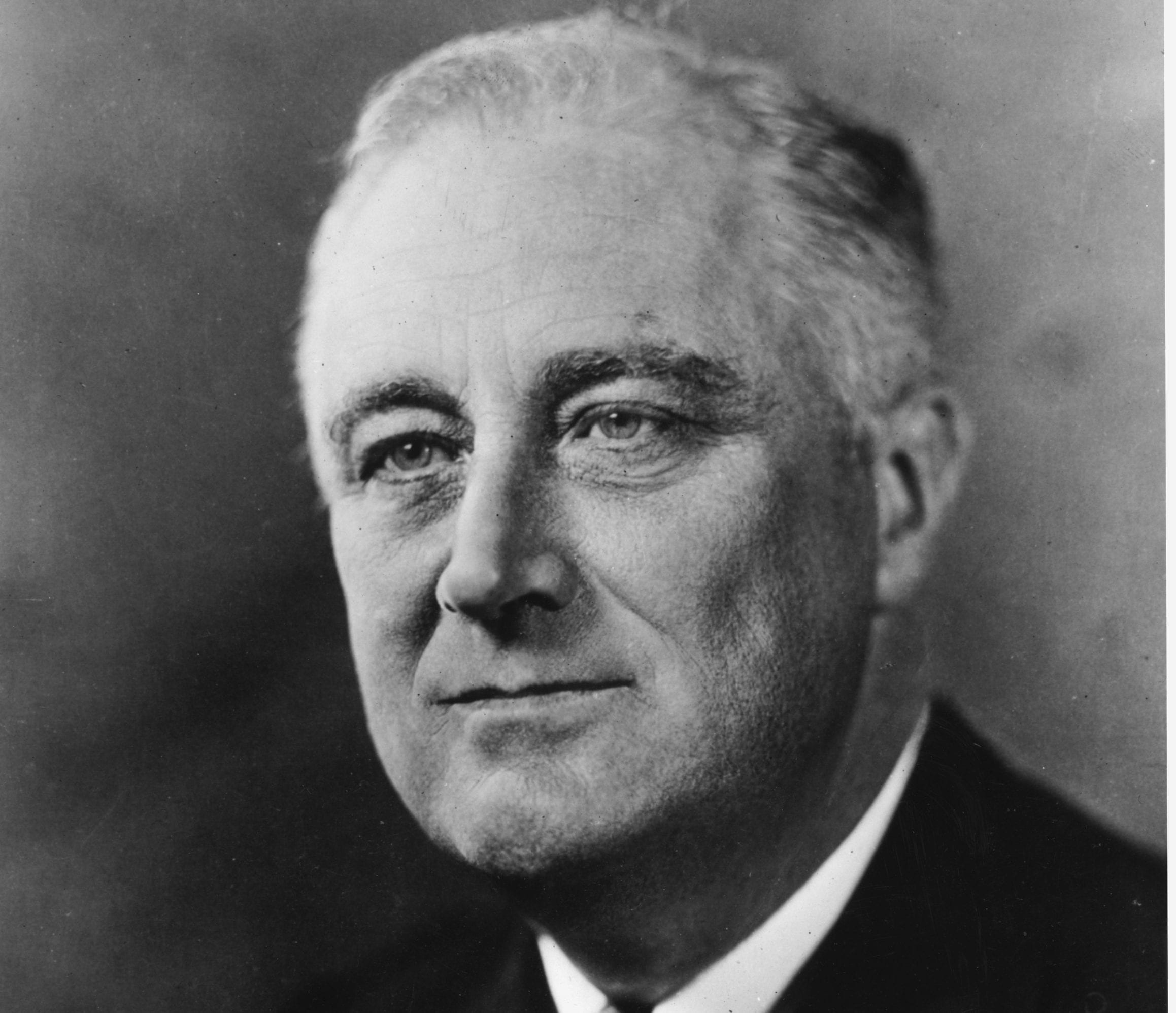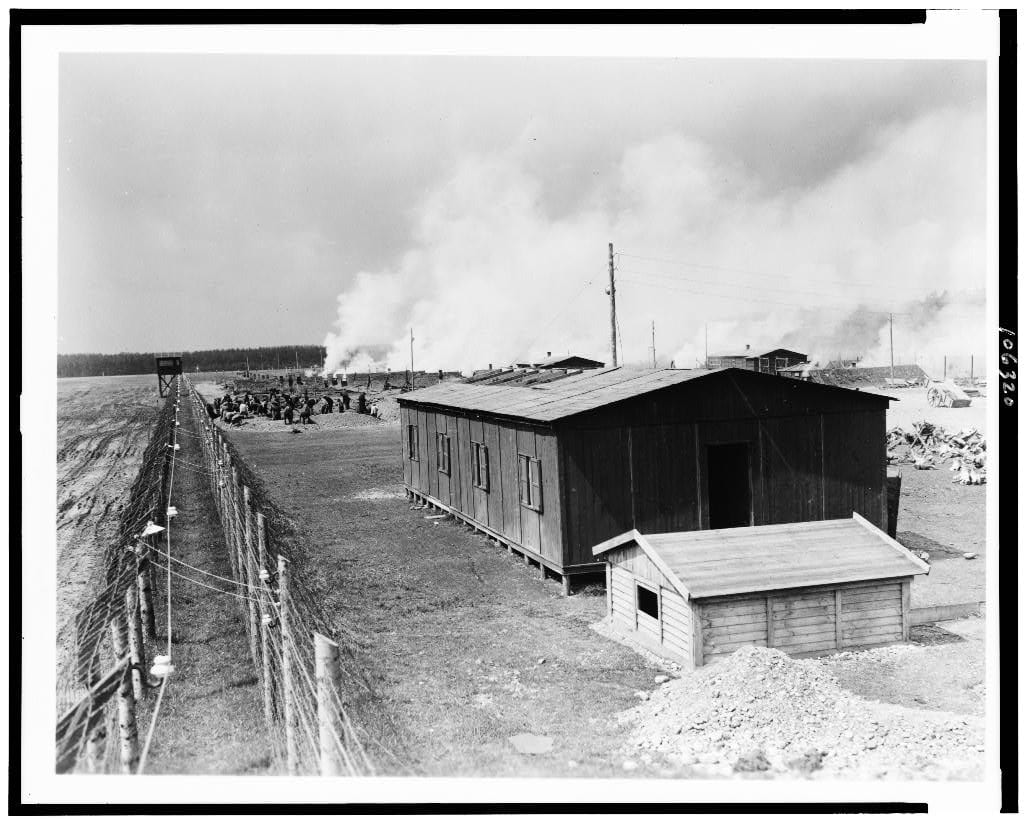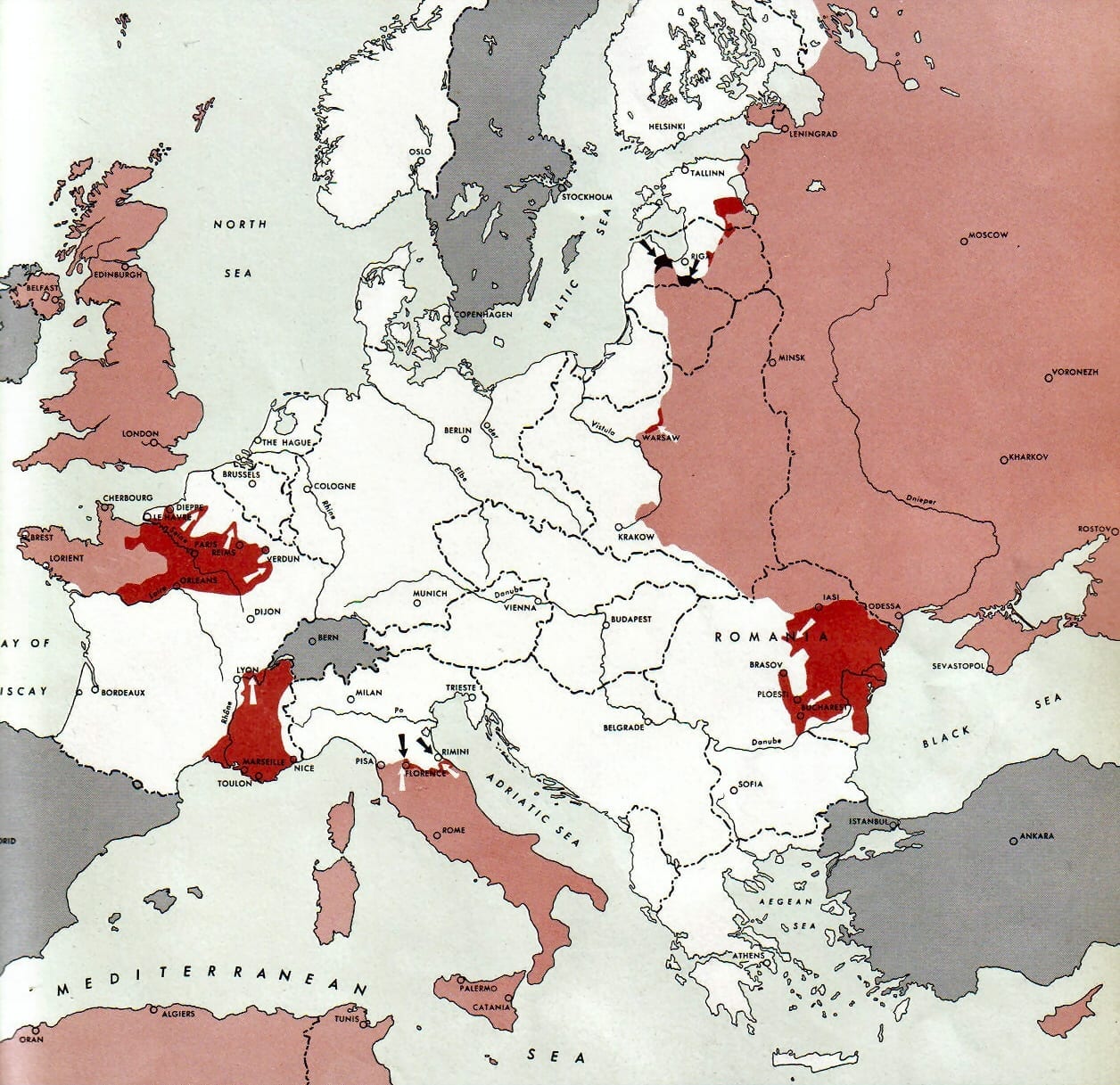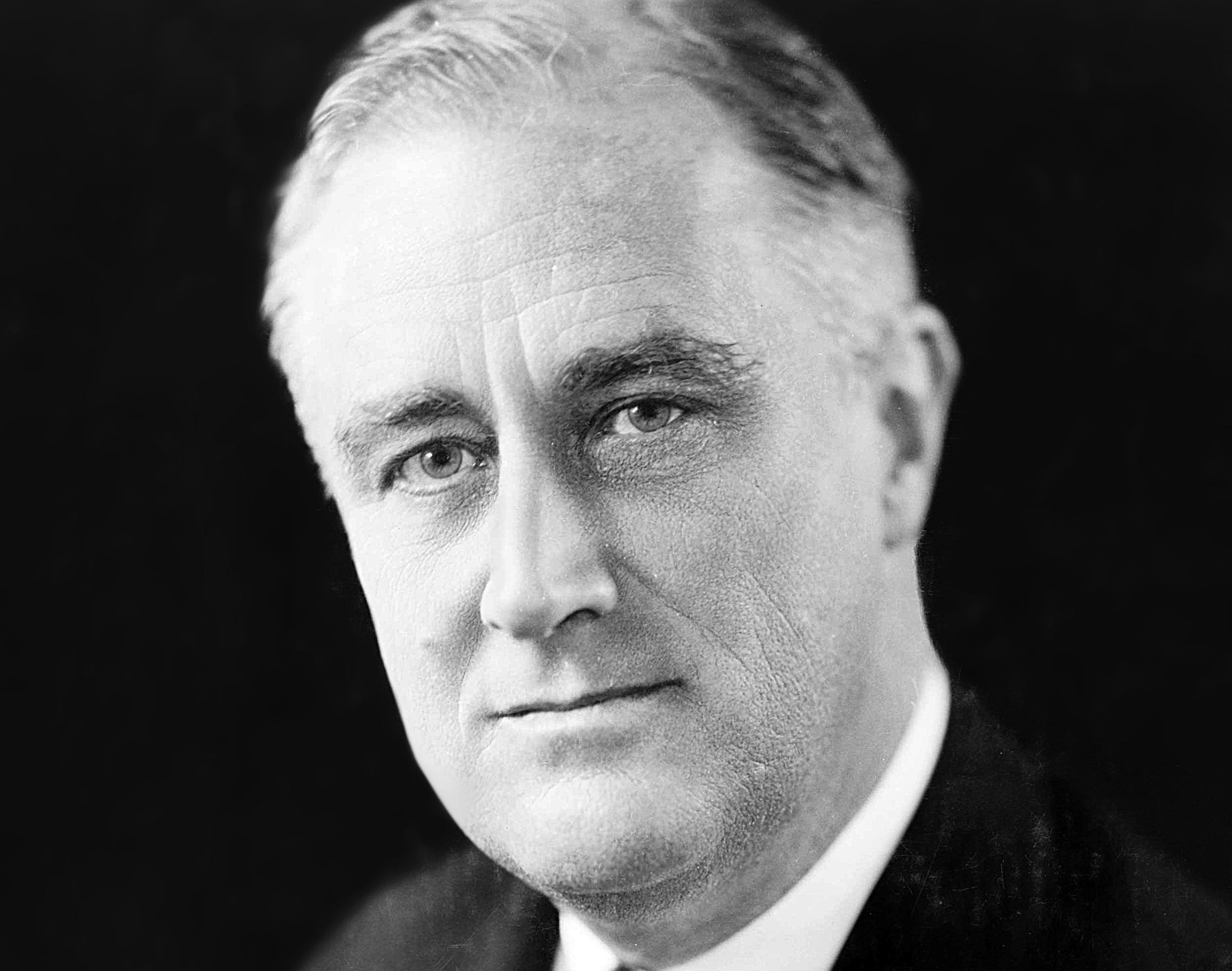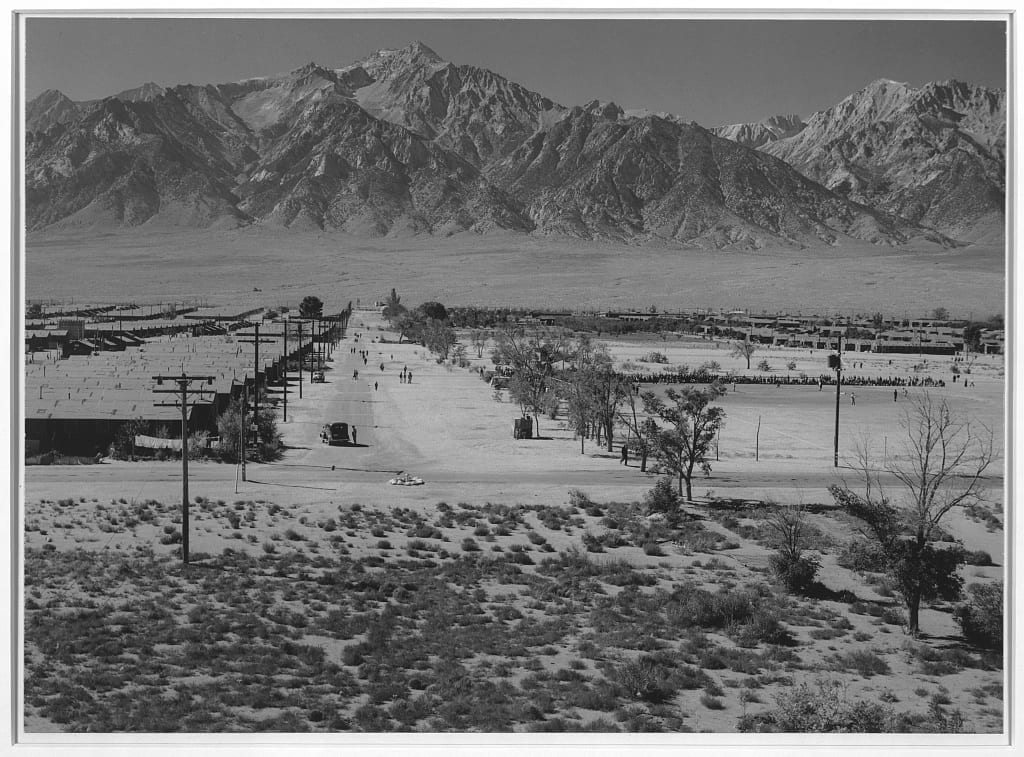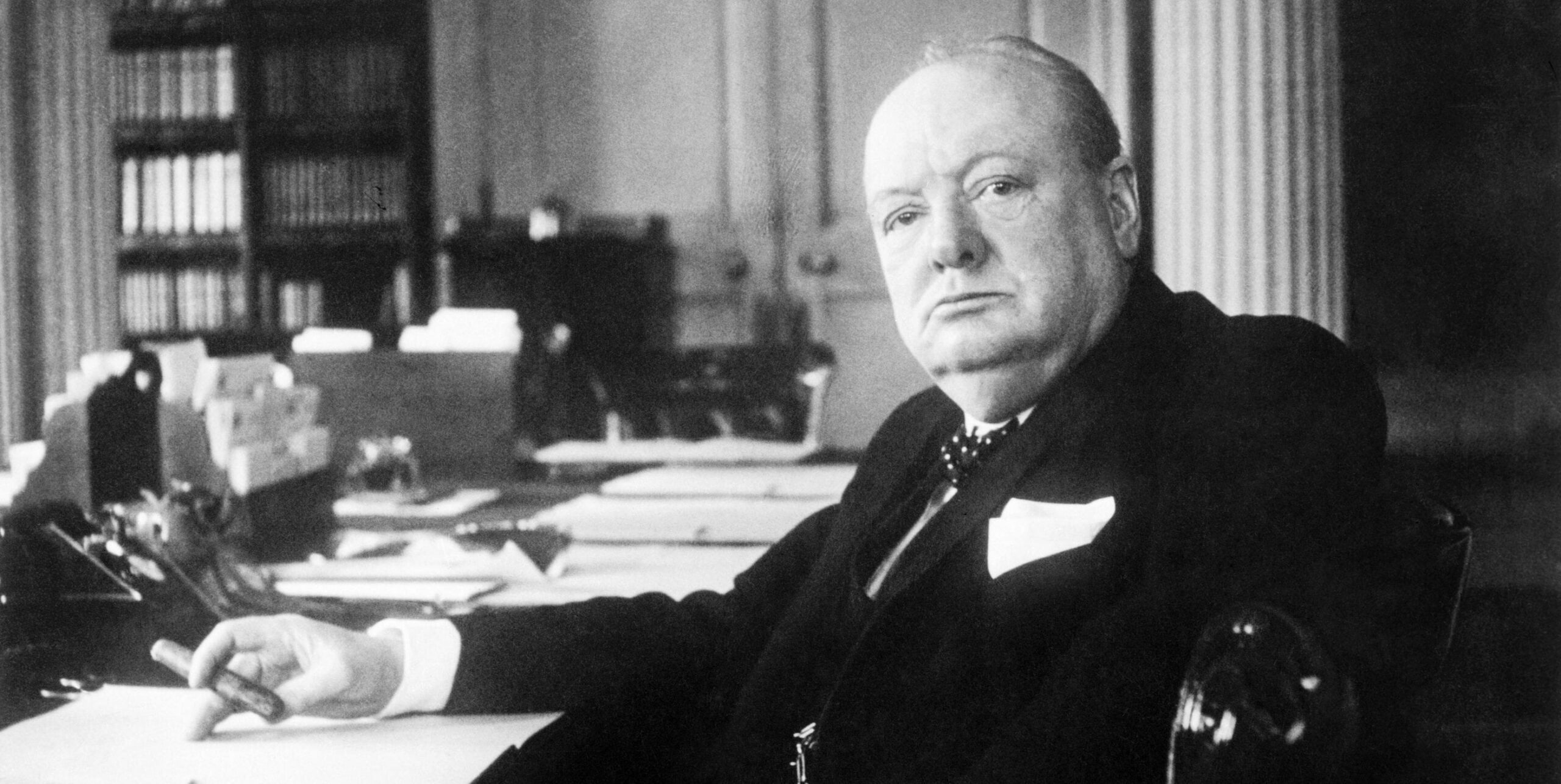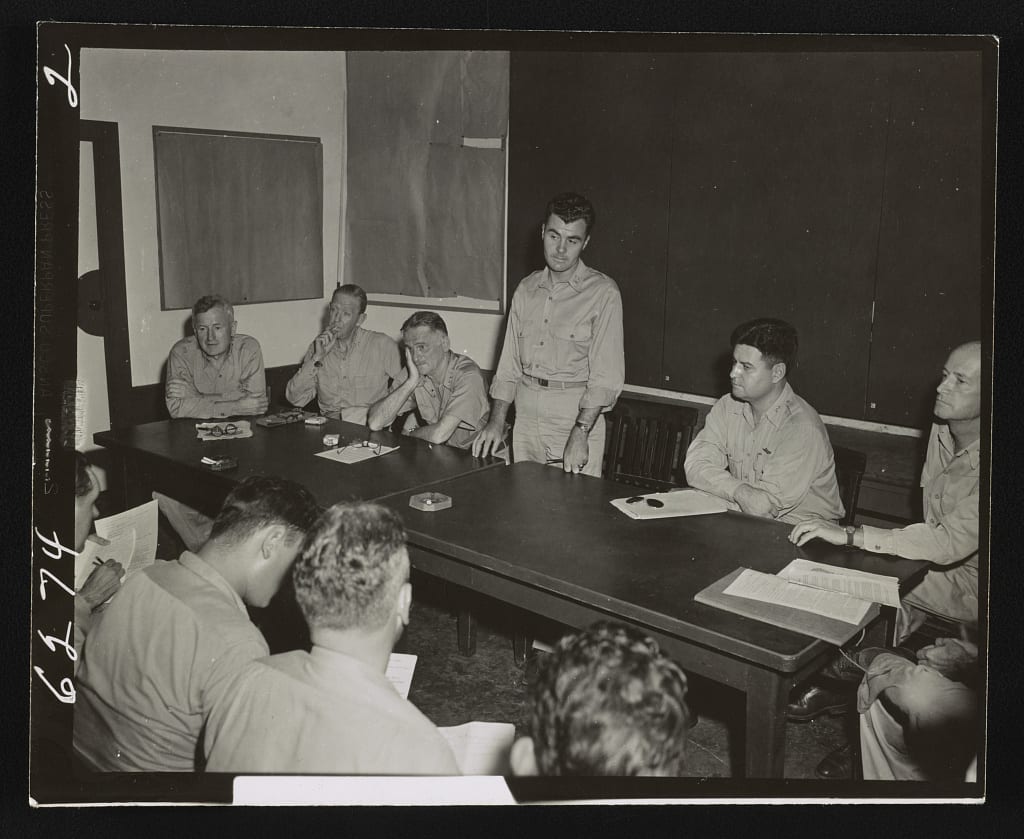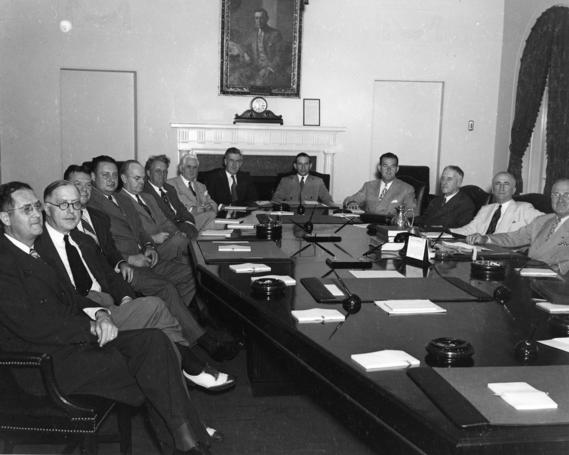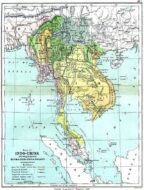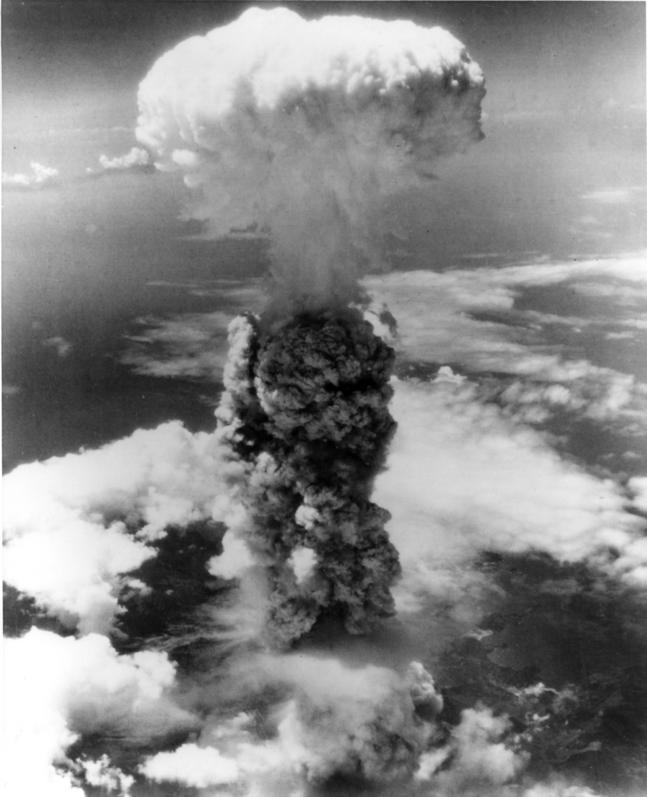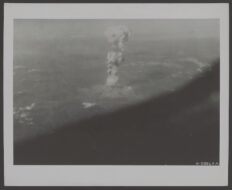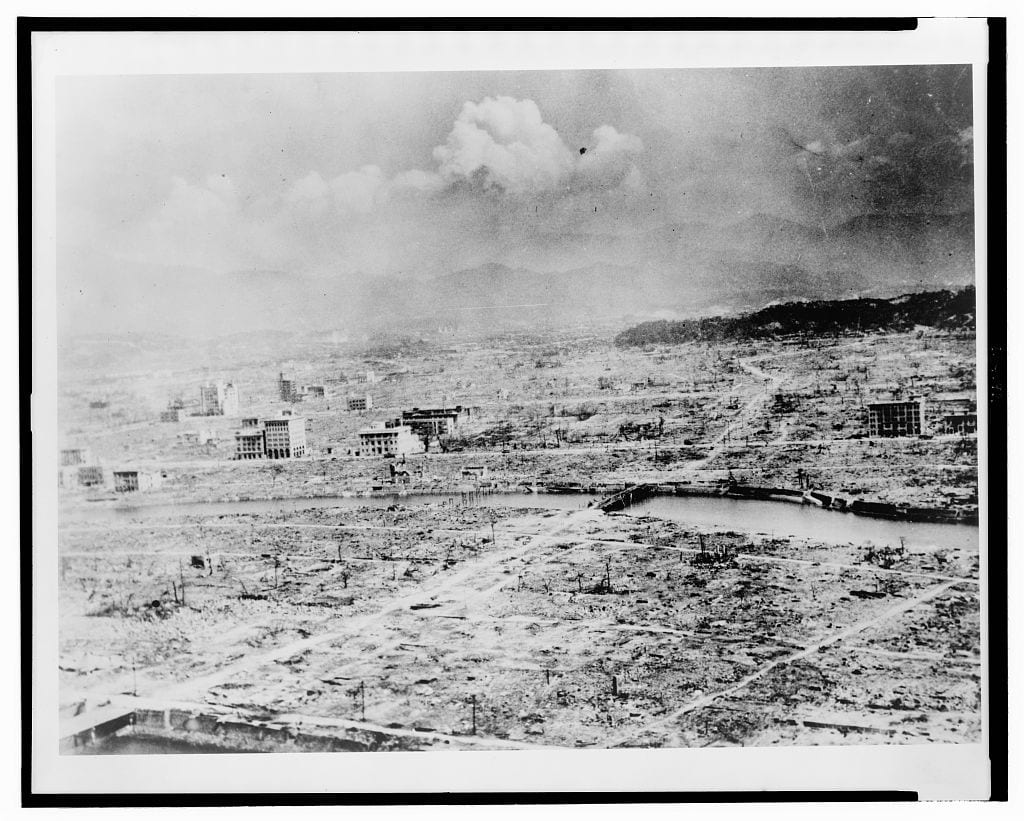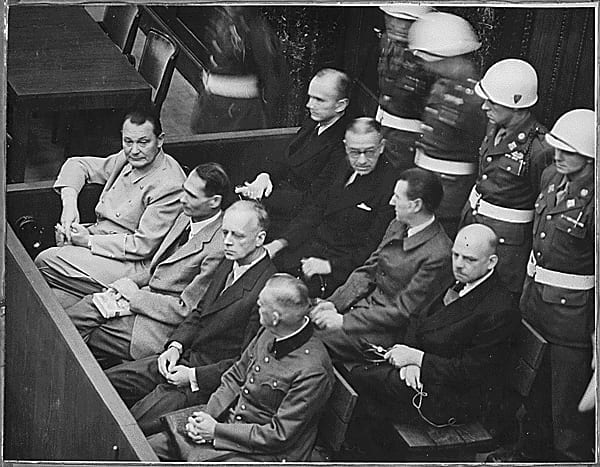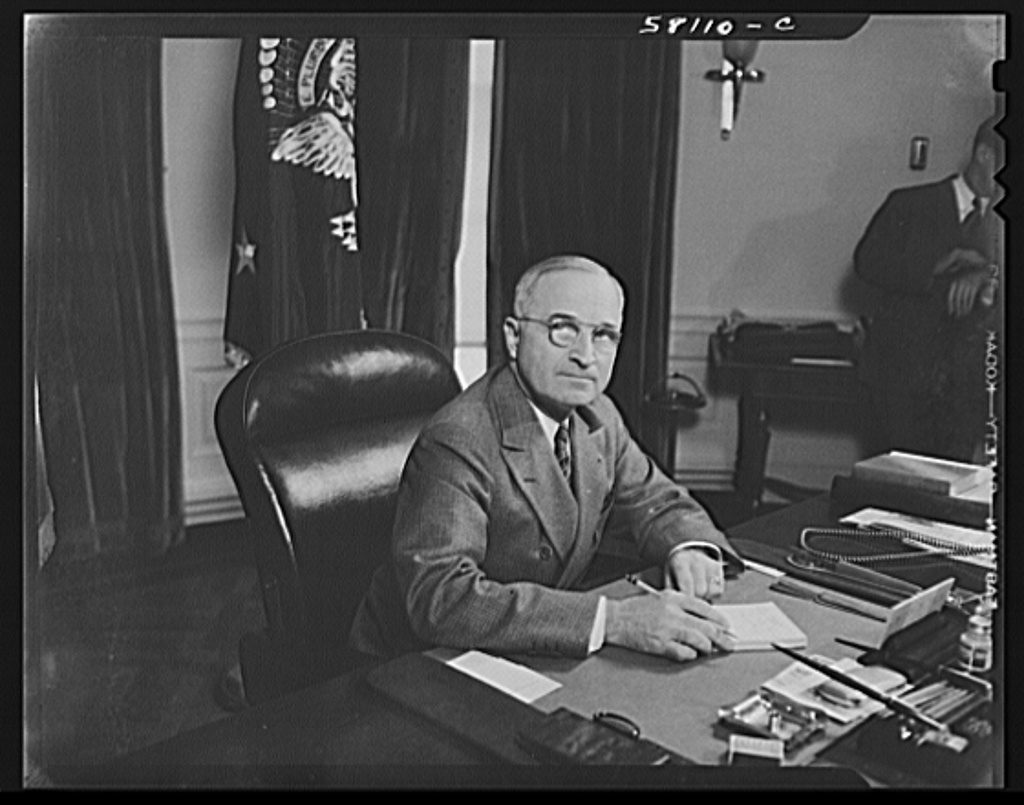
I speak tonight, to this famous club and to so many old friends, not as a leader, but as a plodding soldier, if you please, in the ranks. For the first time in some years, what I have to say commits no one but myself.
The primary duty of political parties is to formulate policies essential to the national welfare, and to provide responsible leadership capable of carrying out the policies favored by the majority. But in considering foreign policies there should be no question of partisanship.
Many fundamental changes have been made and attempted in government in the last few years. The radio has made it easy for people to hear and believe sweet words of promise. We have been promised blessings that no one could deliver. The longing in every heart for safety and security has been answered by policies that could not provide safety and security, in the long run.
We are being led along a road full of the most dangerous hazards. There is no safe, easy road now, as so many expected at election time. All must take the hard way now, and presidential messages and addresses are threatening to make it harder.
Early in December I advocated subsidies to Great Britain. I said we were thinking and acting too softly; that practically everyone wanted the government to help Great Britain, but no one wanted to be disturbed in his present situation to do it; that we would all have to make more sacrifices, because it was in our interests to aid England with materials. In a nutshell, that was what the President said three weeks later, in his fireside chat. The President also proposed a subsidy, but camouflaged it as a lend and lease program, with the slick scheme in mind of fooling the American taxpayers into believing that we would get the unused materials or our money back.
I am tremendously shocked by the intolerant attitude and the lack of frankness of many who discuss the issue involving the life and death of millions of our fellow Americans, and of the republic.
The leftwing radicals in this country are split into two groups. Those who are for war denounce the capitalists of the country as appeasers. The other leftwing group, which is opposed to war, denounces the capitalists as war mongers. Shrill cries of denunciation smother thoughtful argument and wise discussion that are desperately needed in charting our course.
It is extremely difficult to make a factual discussion of the greatest emotional issue since the World War. One that involves death and suffering to many millions, and will affect the pattern of our living and our liberties for many years to come. It is extremely difficult to restrain our natural anger at the brutalities of the Nazis and Fascists, and our admiration and sympathy for the heroic English and Greeks.
There is little disagreement as to the unity of effort necessary to speed vital production for national defense. We are facing a real emergency, and there must be no half-way efforts here. The Communists and the Bunds are the only ones opposing America’s efforts to defend herself.
There has been much confusion on the vital question of what form our aid to Great Britain should take. And that confusion is caused by failure to settle the question of whether the success of Great Britain is the dominant vital interest of America, or whether staying out of war is the dominant vital interest of America. The President, in his message to Congress, practically committed us to underwrite an English victory, despite his pledge to the nation in his last fireside chat that we would not send an expeditionary force to Europe. I can’t see how, in all sincerity, he can reconcile his message to Congress with that pledge, unless his words were mere rhetoric, when he said “principles of morality and consideration for our own security will never permit us to acquiesce in a peace dictated by the aggressors.”
So far, in our aid to the British we are following, step by step, the pattern of the last World War. First, materials; second, money; and third, men. I am willing to take the first two steps, but not the third. Baldly stated, this brings little disagreement—publicly, at least. But the way we do the first and the second is the answer to the third. Too many of us are overlooking the inevitable effect of our actions regardless of our intentions.
Those who really mean all aid to England short of war should specifically say: NO CONVOYING. NO AMERICAN SHIPS IN WAR ZONES. Are we for or against sending convoys or American ships into the war zones, or lending any more of our defense equipment over the protest of Army and Navy officials? This is a vital issue, because the minute an American ship is sunk, and the American flag is fired upon, and Americans are killed, we are in the war, with men.
That means we have to underwrite a victory for Great Britain. If we are not to undertake that, we cannot give a blank check to Great Britain. The President did this in his message to Congress, when he said we would not allow Hitler to dictate the terms of peace. Here is a new and entirely different interpretation of national foreign policy than he stressed during his pre-election campaign. Then he advocated “all aid to Britain, short of war.” Now he says we do not intend to let the dictators win. Instead of “aid short of war” the President further committed himself to a war policy by urging “full support of all those resolute peoples, everywhere, who are resisting aggression. * We ex-press our determination that the democratic cause shall prevail.”
If this policy is to prevail, we must fight, if need be, in order to make the President’s words good. What then be-comes of his pledge not to send an armed expeditionary force to Europe? “Wars still are won or lost by the actual conflict of armed bodies of troops.”
If we are to stay out of this conflict with our troops, we must be careful of the pattern our aid is to follow. We must intelligently, not emotionally, discuss where one step today leads us tomorrow.
That is one criticism I would make of the proposed lend and lease program. Unless the specific details were submitted to the Congress, step by step, we might be in the war before we knew it. Furthermore, there is not a good foundation for the President’s specious reasoning that this would not cost the American taxpayer, The lend and lease program is the seed of future friction between England and America. It is like endorsing a blank note for a friend. You never know how much it is going to cost, and when.
As I have said, early in December I proposed an outright subsidy to Great Britain. The advantage of this over the lend and lease program is that it is honest giving of help to England. We will know at all times exactly to a penny how much it is costing. We can stop it whenever we want to. It was the policy of England, in the seventeenth and eighteenth centuries. It runs no risk of involving us in war, and we continue it as long as it is to our interest. I don’t favor helping England as a matter of charity, or of common ties. I favor helping her because it is to America’s interest to do so. And we should charge the cost as part of our national defense.
With an outright subsidy we are not underwriting an English victory with the blood, suffering, and lives of our boys. We are only putting in money, that we will lose anyhow under any other scheme. And as I have said, it is the policy England pursued in subsidizing continental nations.
Let’s stop kidding ourselves on aid to Great Britain short of war, and lending and leasing without cost to the American taxpayer. The lending of war material—the garden hose scheme—might better be compared to lending a cake of ice in July in Kansas, with the same hope of recovery.
Those who favor a course of all aid to Great Britain should also state, if words have their natural meaning, that America is going to underwrite a British victory. Then we would have an honest, clear statement of policies that would not confuse the issue.
Let us face frankly the question, is a British victory essential to America’s security? If it is, and if we are going to adopt that policy, the sooner we end our indecision the better, because the more effective we will be, especially in the highly important coordination of our efforts with Great Britain’s. But I do not believe that a British victory is essential to our security. I think our difficulties would enormously increase if Hitler should win. You can’t have good relations when there is no trust, and we cannot believe his official statements. If he wins, we certainly will be living in a world doing business on a government-controlled barter basis. Also, if Britain wins, we may do so, to some extent. Of course, if Britain wins, it will be much easier to uphold the Monroe doctrine. We will be much more secure in the essential raw materials we do not possess. And the chances for working out world collaboration for peace and order are certainly much better with England surviving. But none of these things threaten the security of the republic as much as would our becoming involved in another European war. There isn’t a Navy or a combination of Navies in the world that can seriously menace our shores or those of the countries north and south of us, unless the entire English Navy is surrendered intact. If England is in such shape that this is probable, then she is past help.
We have a great and a very real interest in English success. But to say our national security rests on her victory is a mistatement. Even if England wins this war, and the President assures us she will, we are bound to suffer great economic and social disturbances for many years to come.
If Hitler wins, it will be a “new and terrible era” for a time, and we will suffer still greater economic and political disturbances for many years. But in the end free labor will always whip forced labor, and without going to war to do it.
But if we get into this war with fighting forces, when the end comes, we will suffer the greatest economic, social, and political disturbances.
Add a long war to the personal government the President admits with the suspension of the bill of rights and other constitutional safeguards—more short cuts in the name of emergency—more blank checks by the Congress to the chief executive, and representative government in this country will be on thin ice. Then add also a fourth term, plus the terrible economic suffering and racial hatred of minorities which will be the aftermath of our participation in the war, and the Republic may well go through the rock crusher. In defeating totalitarianism abroad, we will strengthen its hold here at home. Already the President is maneuvering behind the screen of national defense to seize control of the oil industry. Where is there the slightest foundation for his statement of last week of the “urgent need” of federal control?
I supported the federal oil control bill when it was first proposed by the administration eight years ago. And later I supported the state compact. It was weak and wobbly at the start. It has grown stronger with the years. The “urgent need” for federal legislation was before the states had learned how to handle this vital conservation problem. Today the states, with the exception of Illinois, are doing a pretty good job of conservation. I wish the national administration was doing as good a job in national defense. The greatest bottlenecks are in its management of other businesses. The attempt to take the oil conservation problem out of the hands of the states is a warning of what will be attempted under the smokescreen of national defense.
Already the Civil Liberties Union is warning of curbs on the freedom of labor and minority groups. Even a few months more of what we are doing now will mean economic chaos, and a regimented society, when the end comes, unless we plan wisely now.
Already force and terrorism, which are the foundation of the dictator’s strength, are in evidence in this country. They are being used by the city bosses. Millions of pseudo-free Americans have already unconsciously adopted the philosophy of the black shirts and the brown shirts and the reds, in that they boast that if you belong to the “organization” the “organization” will take care of you.
Already force and threats have been used by administration spokesmen to gain political support for the administration in political campaigns and in legislation.
No, the question of the survival of the Republic is not going to be decided in England. It will be decided here. With the question of our methods of aiding Britain playing a vital part in that decision. Also, the survival of the Re-public is going to be decided by how wisely we meet the problems of inequitable distribution of wealth; of securing the cooperation and responsibility of labor; of protecting the ownership of the land by the man who actually lives on it and works it; and strengthening our economic foundations, weakened by eight years of New Deal experiments.
We must recognize the fundamental fact that the United States is an indivisible economy, as well as an indivisible union of the states. This calls for treatment of agriculture, labor, industry, and finance no longer as separate problems, but as inseparable parts of the common national interest.
It is rather obvious, whatever happens, that the capitalistic system is going through a wringer, but the question remains to be decided, again and again, whether the Republic is to go through a rock crusher. When the clothes go through the wringer they come out clean and new, ready for more wear. But rocks going through a crusher come out broken up.
To state our present position in the simplest terms, we are living deliriously and dangerously upon a war boom bubble, ready to burst upon the first prick of peace. The longer the war boom bubble goes, the worse it will be. The after-math may be accompanied by nearly as grave dangers to our form of government, to our way of life, to our individual liberties and basic personal rights, as the war period itself.
By that time, whether we have participated in the present European and Asiatic wars or not, with our navy and troops, the entire economy of the United States will have been built upon—and built up, high, wide, and handsome—a war economy.
Will government be prepared for the change from a war-time boom to a peacetime economy? Will industry be prepared? Will labor be prepared? Will finance be prepared? Will the farmer be prepared? Will the party in power be prepared? Will the opposition party be prepared?
Here are some questions worth thinking about, and worthy of the highest type of leadership now, in preparing to work out the answers. Unless industry, labor, agriculture, finance, and political leadership are willing and able to cooperate in the post-war period, the only answer to the post-war problems will be a complete regimentation by government—and a personal, one-man government, at that.
We, as Republicans, as the opposition party, have a responsibility that our leadership be planning, and planning with leaders of the groups I have named, for this period of transition, so that there may be unity in working out the post-war period.
But we have immediate jobs ahead of us. The United States is facing a decision; whether we in the western hemisphere shall try to preserve intact here in the New World the democratic principle of government, or whether we shall become, forever and a day, a party to Old World power politics.
Neither nations nor individuals can become assured of any kind of security, through the use of force to try to guarantee security to others.
Through a contagion of fear, peoples all over the world have become hysterical about security—about economic rather than political security. There is no economic security for the masses, except that which comes through retaining and exercising political power the average citizens have acquired through popular government. All of us are certain to lose much of the political powers we possess if we are drawn into this war. Therefore there is nothing so important to all of us as to remain at peace until we are forced to fight for our own political security.
I believe our way of life will be made easier if England wins. But the all important determination for us is to make ourselves strong enough to preserve that way of life, no matter who wins the war.

Conversation-based seminars for collegial PD, one-day and multi-day seminars, graduate credit seminars (MA degree), online and in-person.

